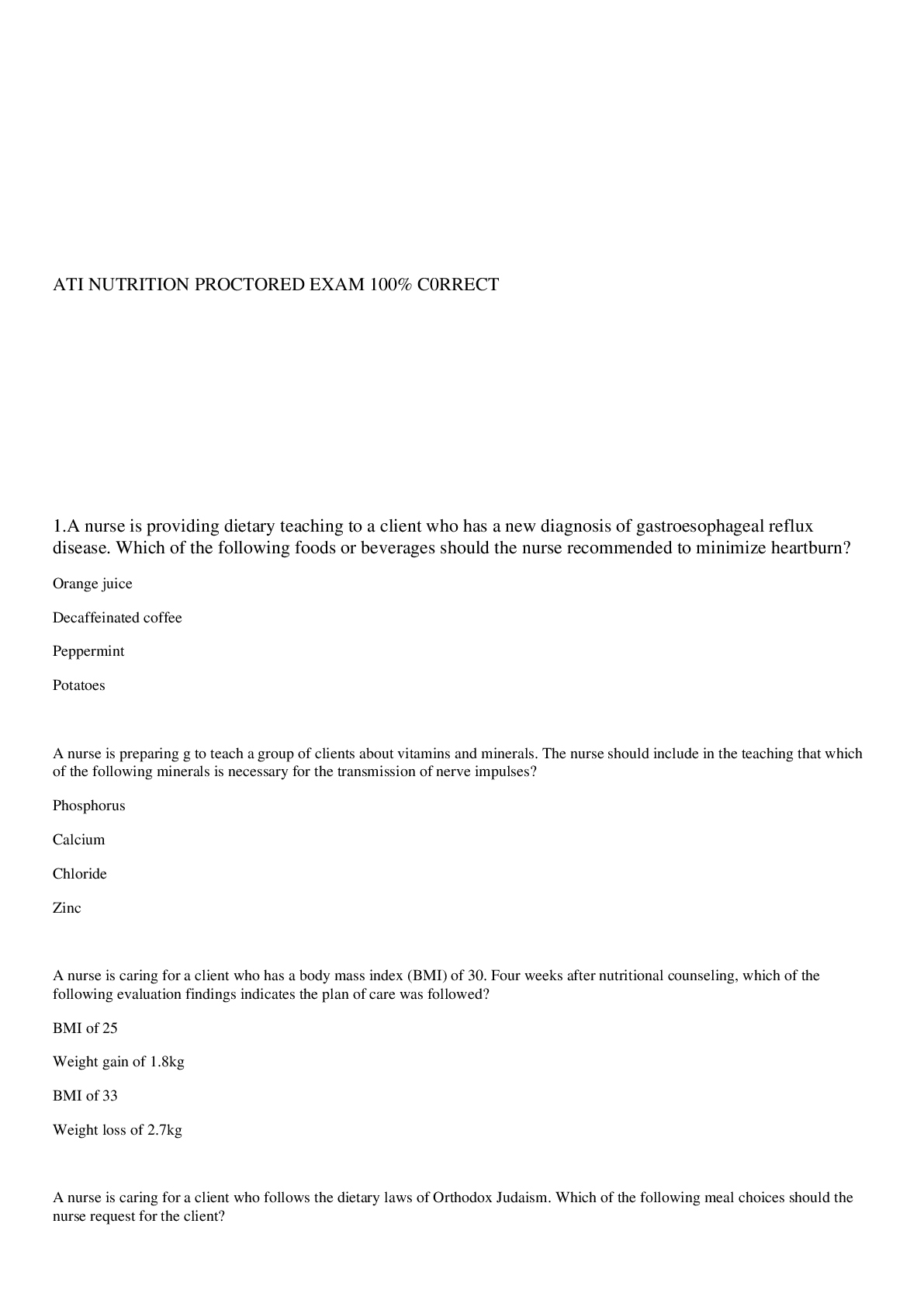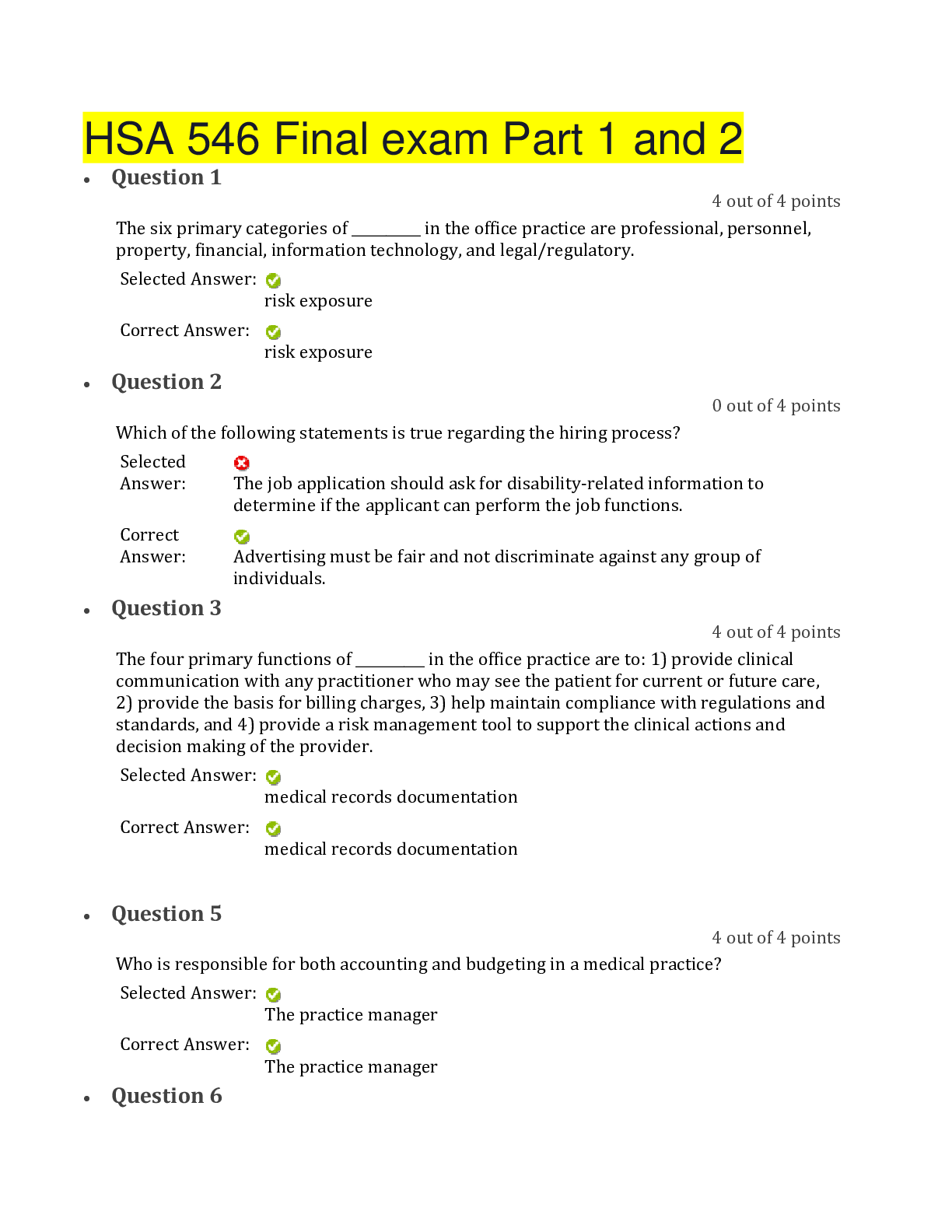*NURSING > EXAM > HESI RN Mental Health | Highly Rated | Questions and Answers with Rationales | LATEST (All)
HESI RN Mental Health | Highly Rated | Questions and Answers with Rationales | LATEST
Document Content and Description Below
HESI Mental Health | Highly Rated | Questions and Answers with Rationales | LATEST 1. A male client with mental illness and substance dependency tells the mental health nurse that he has started ... using illegal drugs again and wants to seek treatment. Since he has a dual diagnosis, which person is best for the nurse to refer this client to first? A) The emergency room nurse. B) His case manager. C) The clinic healthcare provider. D) His support group sponsor. Rationale: The case manager (B) is responsible for coordinating community services, and since this client has a dual diagnosis, this is the best person to describe available treatment options. (A) is unnecessary, unless the client experiences behaviors that threaten his safety or the safety of others. (C and D) might also be useful, but it is most important at this time that a treatment program be coordinated to meet this client's needs. 2. The nurse is taking a history for a female client who is requesting a routine female exam. Which assessment finding requires follow-up? A) Menstruation onset at age 9. B) Contraceptive method includes condoms only. C) Menstrual cycle occurs every 35 days. D) Black-out after one drink last night on a date. Rationale: A "black-out" typically occurs after ingestion of alcohol beverages that the client has no recall of the experiences or one's behavior and is indicative of high blood alcohol levels, but the client's experience of a "black-out" after one drink (D) is suspicious of the client receiving a "date rape" drug (Flunitrazepam) and needs additional follow-up. Although (A and C) occur on the outer ranges of "average," both are within acceptable or "normal" ranges. (B) is an individual preference, but using condoms as the only contraceptive method carries a higher chance of conception. 3. On admission, a highly anxious client is described as delusional. The nurse understands that delusions are most likely to occur with which class of disorder? A) Neurotic. B) Personality. C) Anxiety. D) Psychotic. Rationale: Delusions are false beliefs associated with psychotic behavior, and psychotic persons are not in touch with reality (D). (A, B, and C) are mental health disorders which are not associated with a break in reality, nor with hallucinations (false sensations such as hearing, or seeing) or delusions (false beliefs). 4. A client, who is on a 30-day commitment to a drug rehabilitation unit, asks the nurse if he can go for a walk on the grounds of the treatment center. When he is told that his privileges do not include walking on the grounds, the client becomes verbally abusive. Which approach should the nurse use? A) Call a staff member to escort the client to his room. B) Tell the client to talk to his healthcare provider about his privileges. C) Remind the client of the unit rules. D) Ignore the client's inappropriate behavior. Rationale: The client is trying to engage the nurse in a dispute. Ignoring the behavior (D) provides no reinforcement for the inappropriate behavior. (A) is not necessary unless the client becomes a physical threat to the nurse. (B) would be inappropriate, because it is referring the situation to the healthcare provider and is not in keeping with good health team management. Consistent limits must be established and enforced. (C) would subject the nurse to more verbal abuse because the client could use any response as an excuse to attack the nurse once again. 5. The nurse observes a client who is admitted to the mental health unit and identifies that the client is talking continuously, using words that rhyme but that have no context or relationship with one topic to the next in the conversation. This client's behavior and thought processes are consistent with which syndrome? A) Dementia. B) Depression. C) Schizophrenia. D) Chronic brain syndrome. Rationale: The client is demonstrating symptoms of schizophrenia (C), such as disorganized speech that may include word salad (communication that includes both real and imaginary words in no logical order), incoherent speech, and clanging (rhyming). Dementia (A) is a global impairment of intellectual (cognitive) functions that may be progressive, such as Alzheimer's or organic brain syndrome (D). Depression (C) is typified by psychomotor retardation, and the client appears to be slowed down in movement, in speech, and would appear listless and disheveled. 6. A homeless person who is in the manic phase of bipolar disorder is admitted to the mental health unit. Which laboratory finding obtained on admission is most important for the nurse to report to the healthcare provider? A) Decreased thyroid stimulating hormone level. B) Elevated liver function profile. C) Increased white blood cell count. D) Decreased hematocrit and hemoglobin levels. Rationale: Hyperthyroidism causes an increased level of serum thyroid hormones (T3 and T4), which inhibit the release of TSH (A), so the client's manic behavior may be related to an endocrine disorder. (B, C, and D) are abnormal findings that are commonly found in the homeless population because of poor sanitation, poor nutrition, and the prevalence of substance abuse. 7. A 19-year-old female client with a diagnosis of anorexia nervosa wants to help serve dinner trays to other clients on a psychiatric unit. What action should the nurse take? A) Encourage the client's participation in unit activities by asking her to pass trays for the rest of the week. B) Provide an additional challenge by asking the client to also help feed the older clients. C) Suggest another way for this client to participate in unit activities. D) Tell the client that hospital policy does not permit her to pass trays. Rationale: Anorexics gain pleasure from providing others with food and watching them eat. Such behaviors reinforce their perception of self-control. These clients should not be allowed to plan or prepare food for unit activities and their desires to do so should be redirected (C). (A and B) are contraindicated for a client with anorexia nervosa. (D) avoids addressing the problem and is manipulative in that the nurse is blaming hospital policy for treatment protocol. 8. A male client is admitted to a mental health unit on Friday afternoon and is very upset on Sunday because he has not had the opportunity to talk with the healthcare provider. Which response is best for the nurse to provide this client? A) Let me call and leave a message for your healthcare provider. B) The healthcare provider should be here on Monday morning. C) How can I help answer your questions? D) What concerns do you have at this time? Rationale: It is best for the nurse to call the healthcare provider (A) because clients have the right to information about their treatment. Suggesting that the healthcare provider will be available the following day (B) does not provide immediate reassurance to the client. The nurse can also implement offer to assist the client (C and D), but the highest priority intervention is contacting the healthcare provider. 9. A woman arrives in the Emergency Center and tells the nurse she thinks she has been raped. The client is sobbing and expresses disbelief that a rape could happen because the man is her best friend. After acknowledging the client's fear and anxiety, how should the nurse respond? A) "I would be very upset and mad if my best friend did that to me." B) "You must feel betrayed, but maybe you might have led him on?" C) "Rape is not limited to strangers and frequently occurs by someone who is known to the victim." D) "This does not sound like rape. Did you change your mind about having sex after the fact?" [Show More]
Last updated: 1 month ago
Preview 1 out of 34 pages
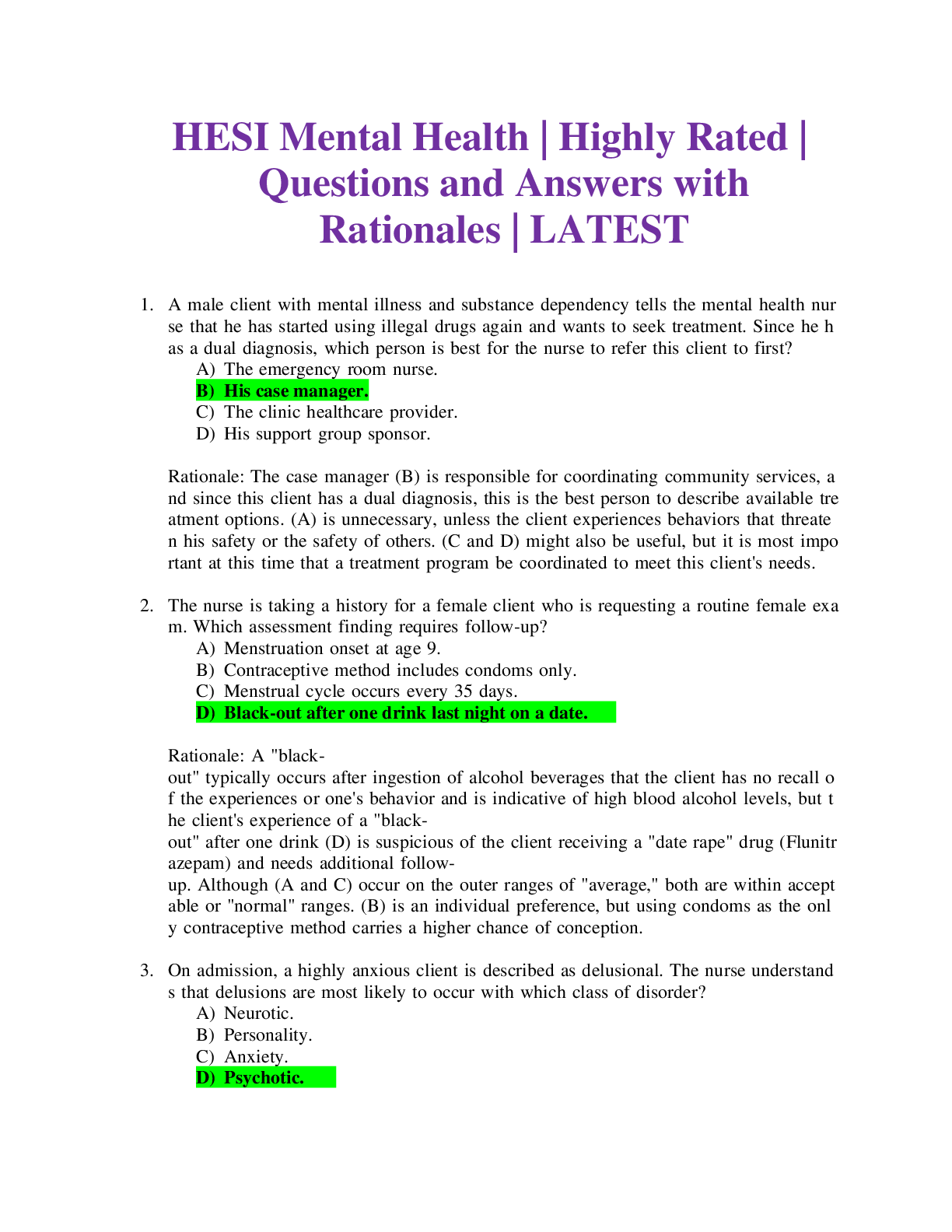
Reviews( 0 )
Document information
Connected school, study & course
About the document
Uploaded On
Apr 24, 2021
Number of pages
34
Written in
Additional information
This document has been written for:
Uploaded
Apr 24, 2021
Downloads
0
Views
58

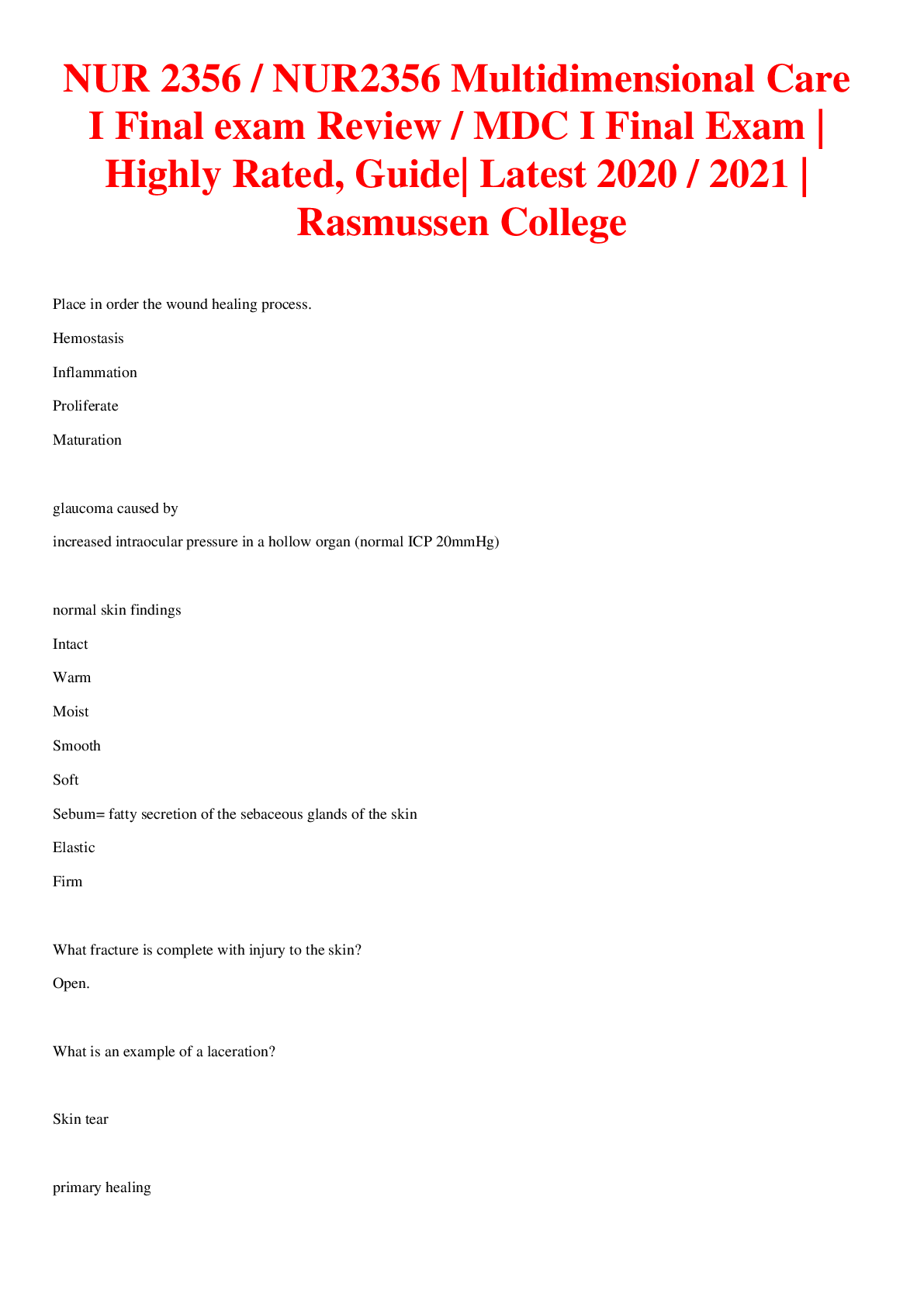
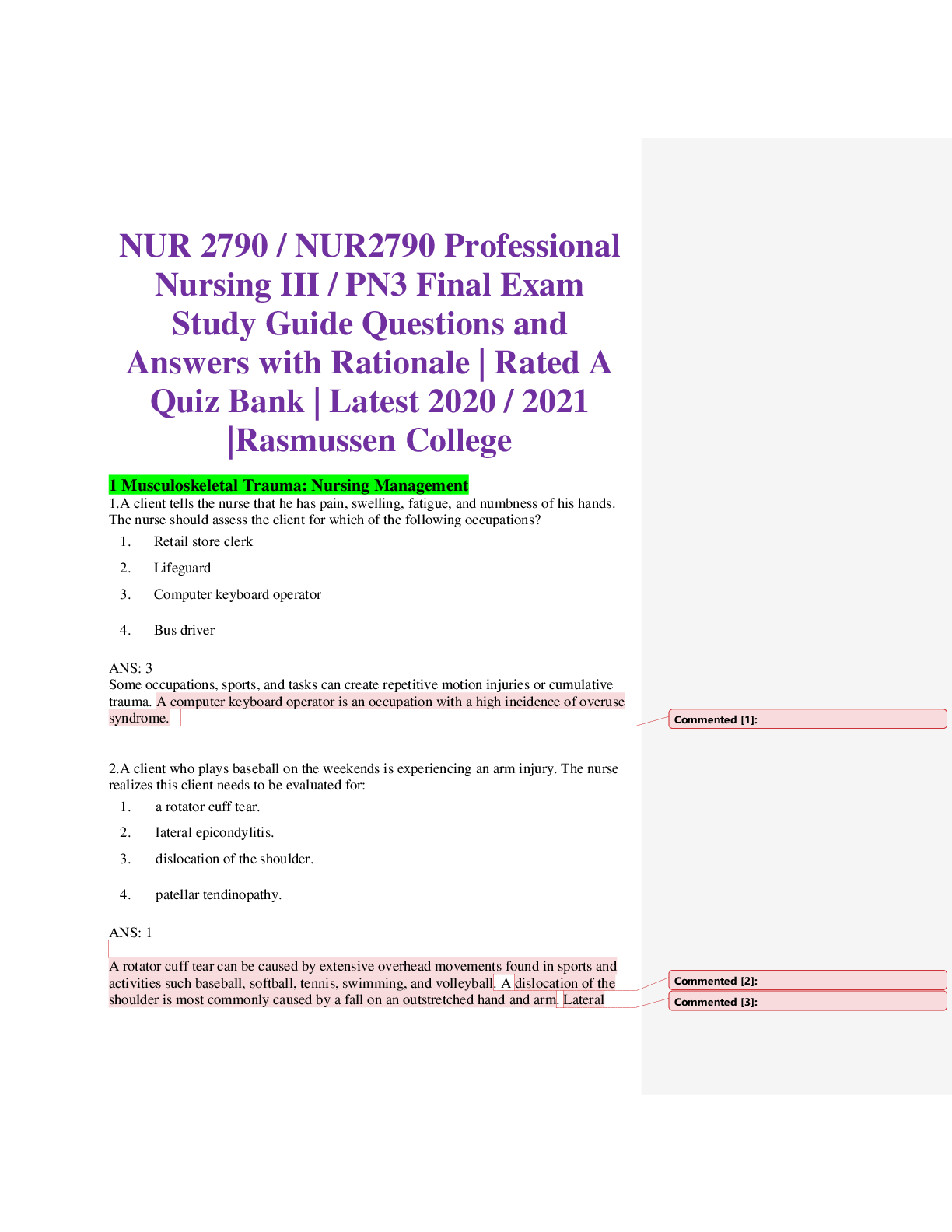
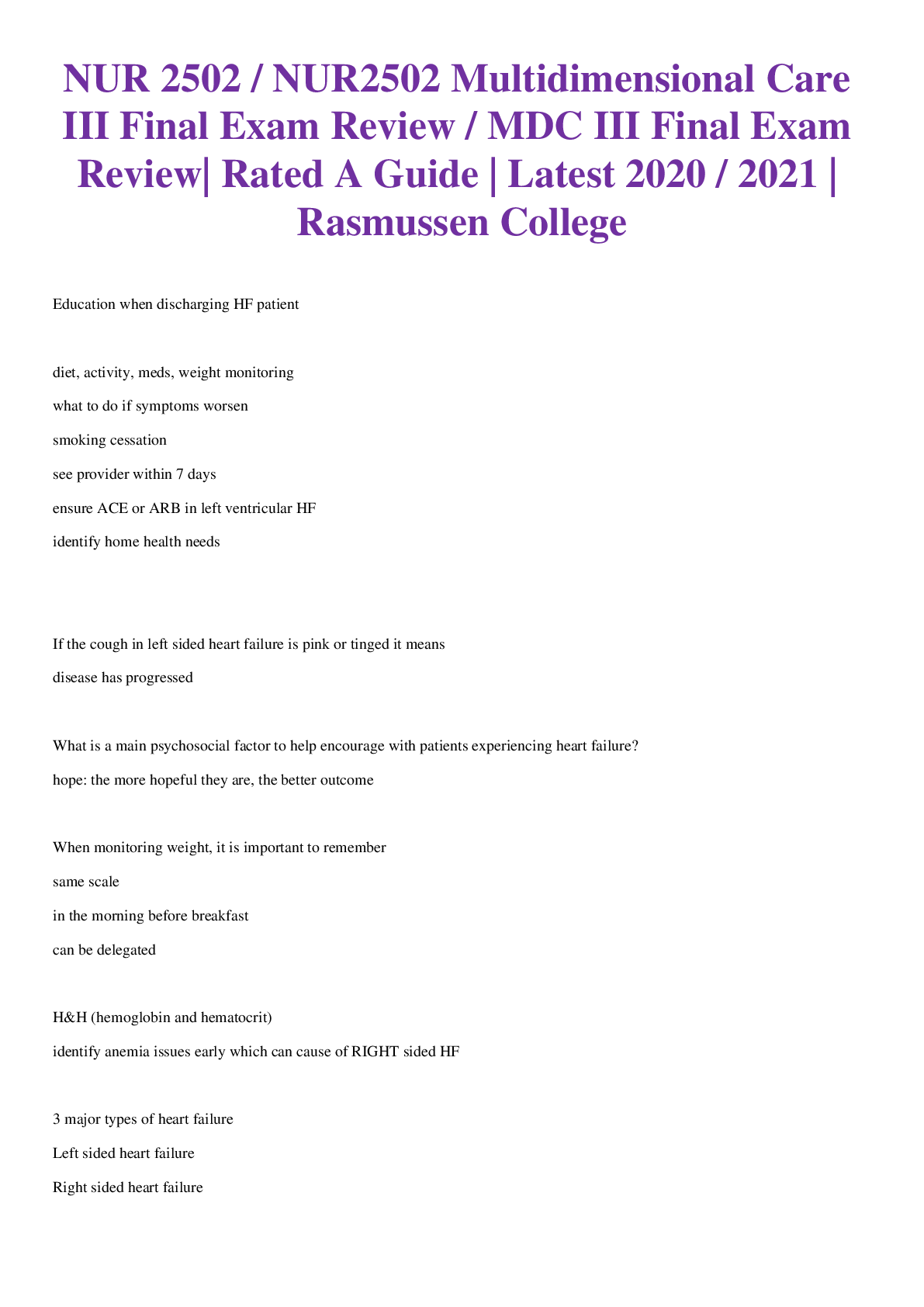

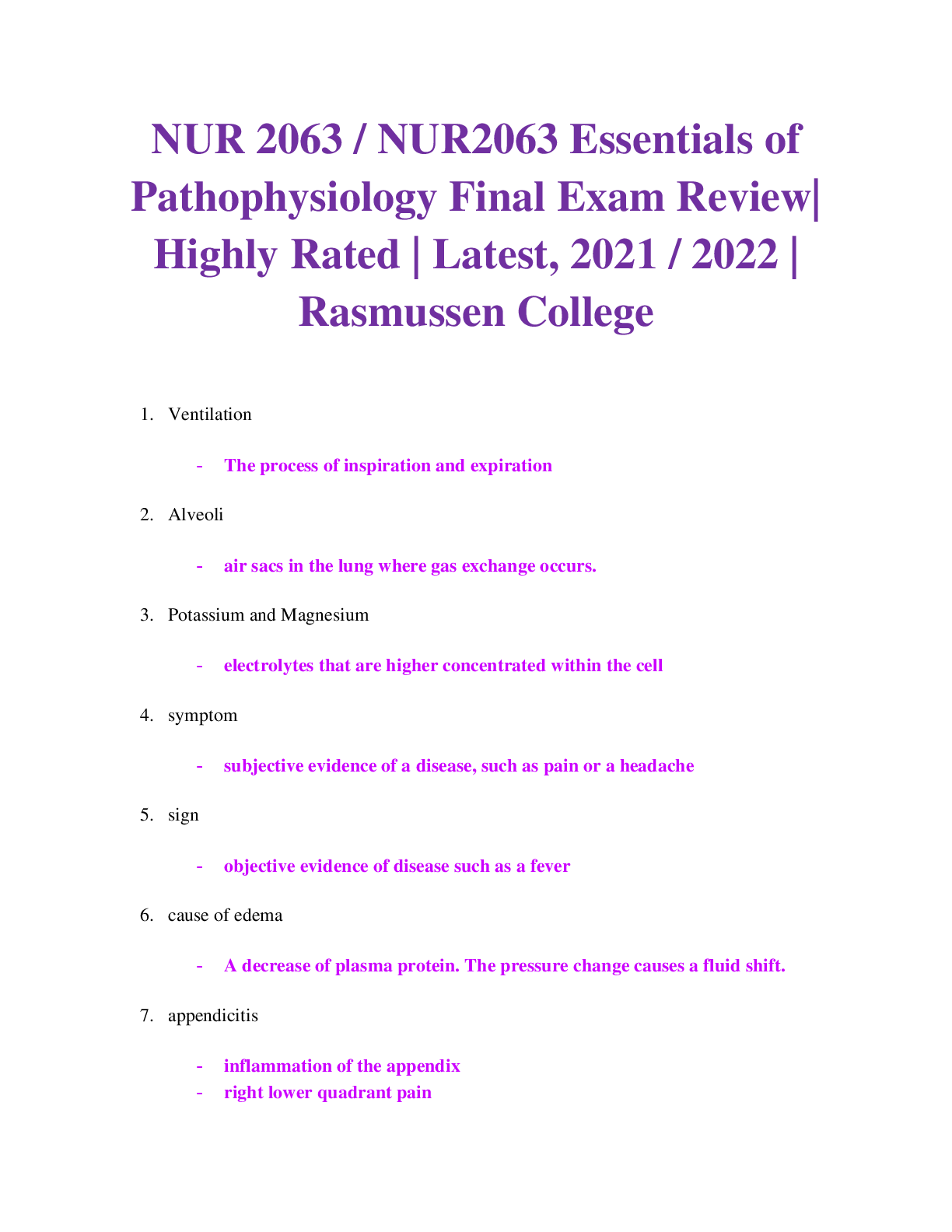
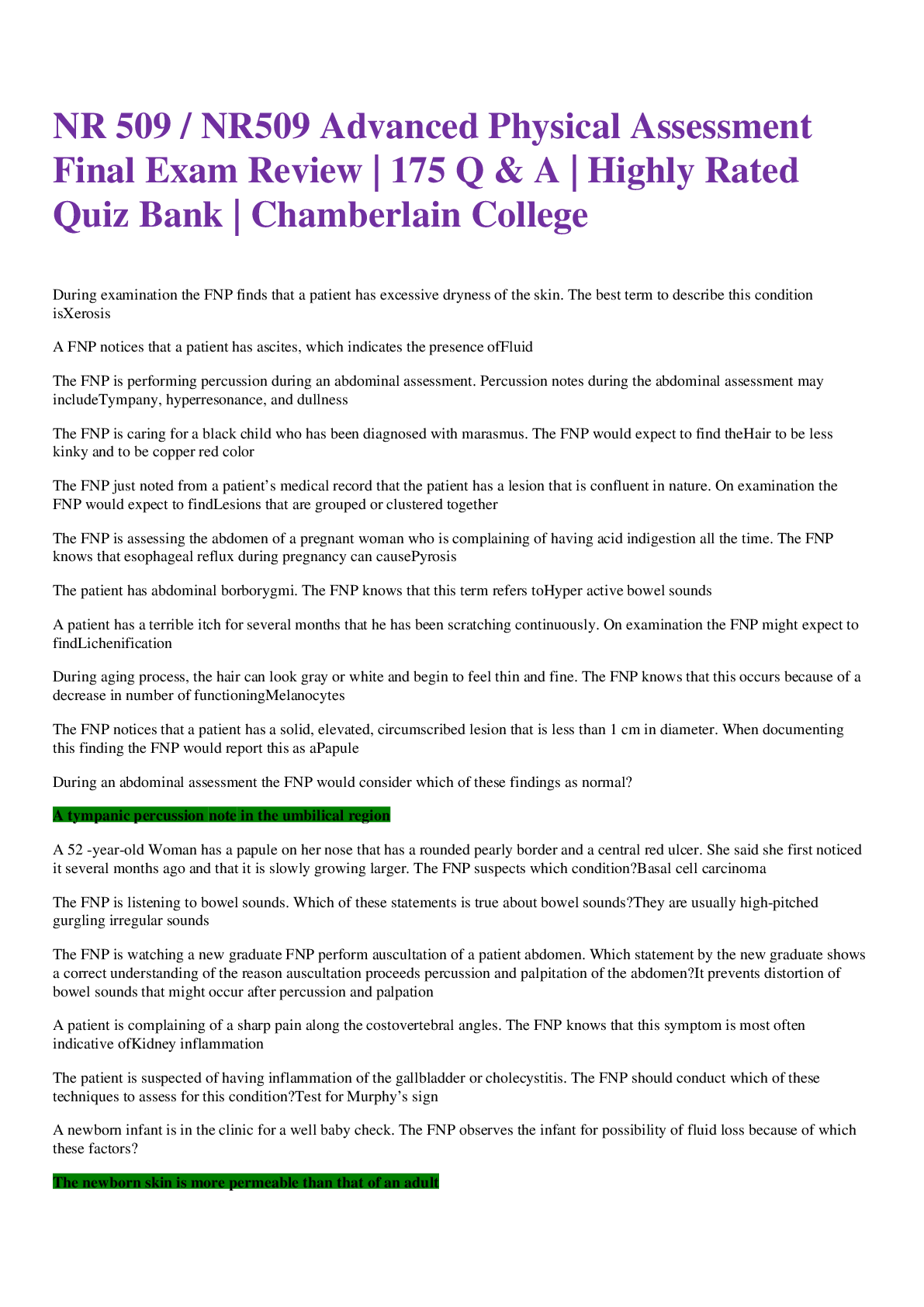
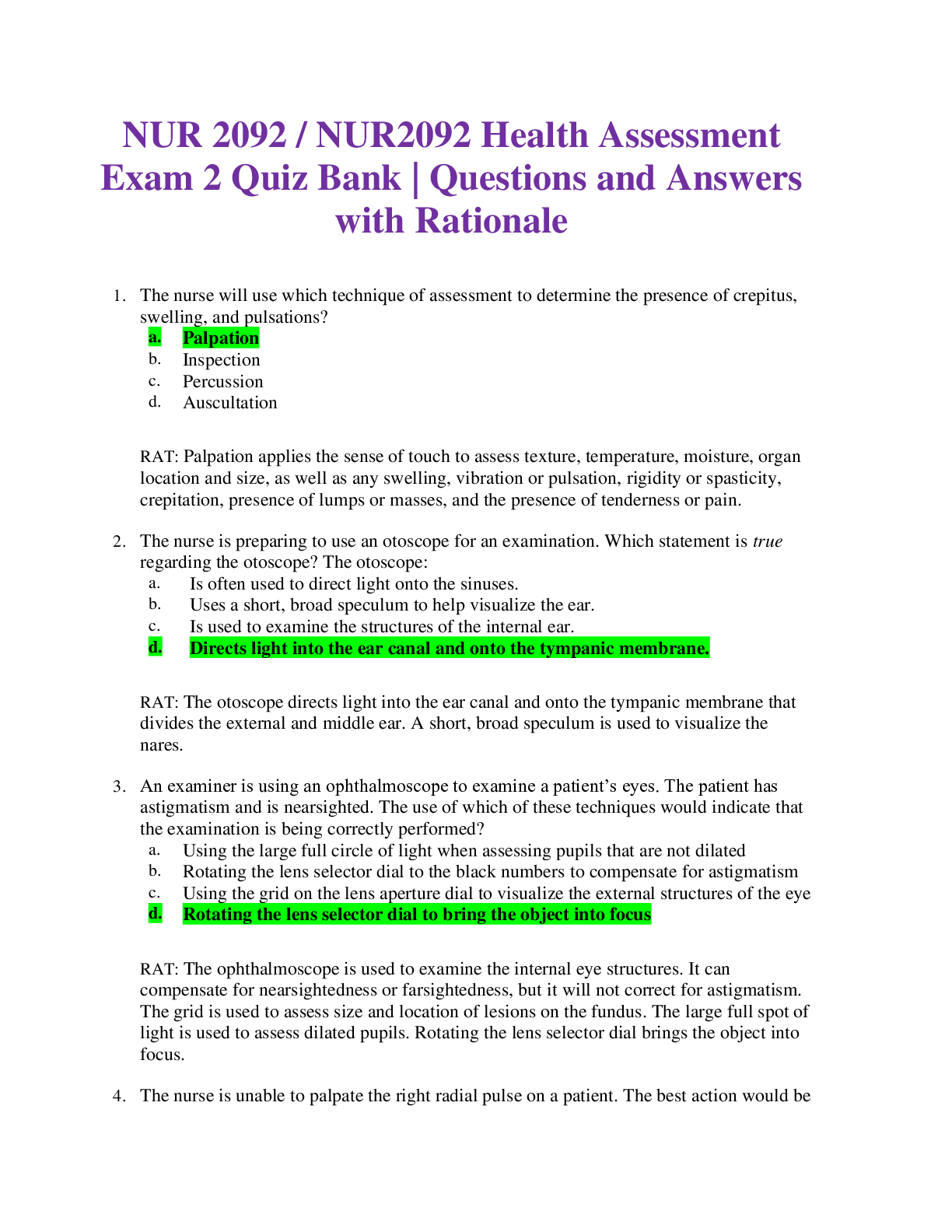
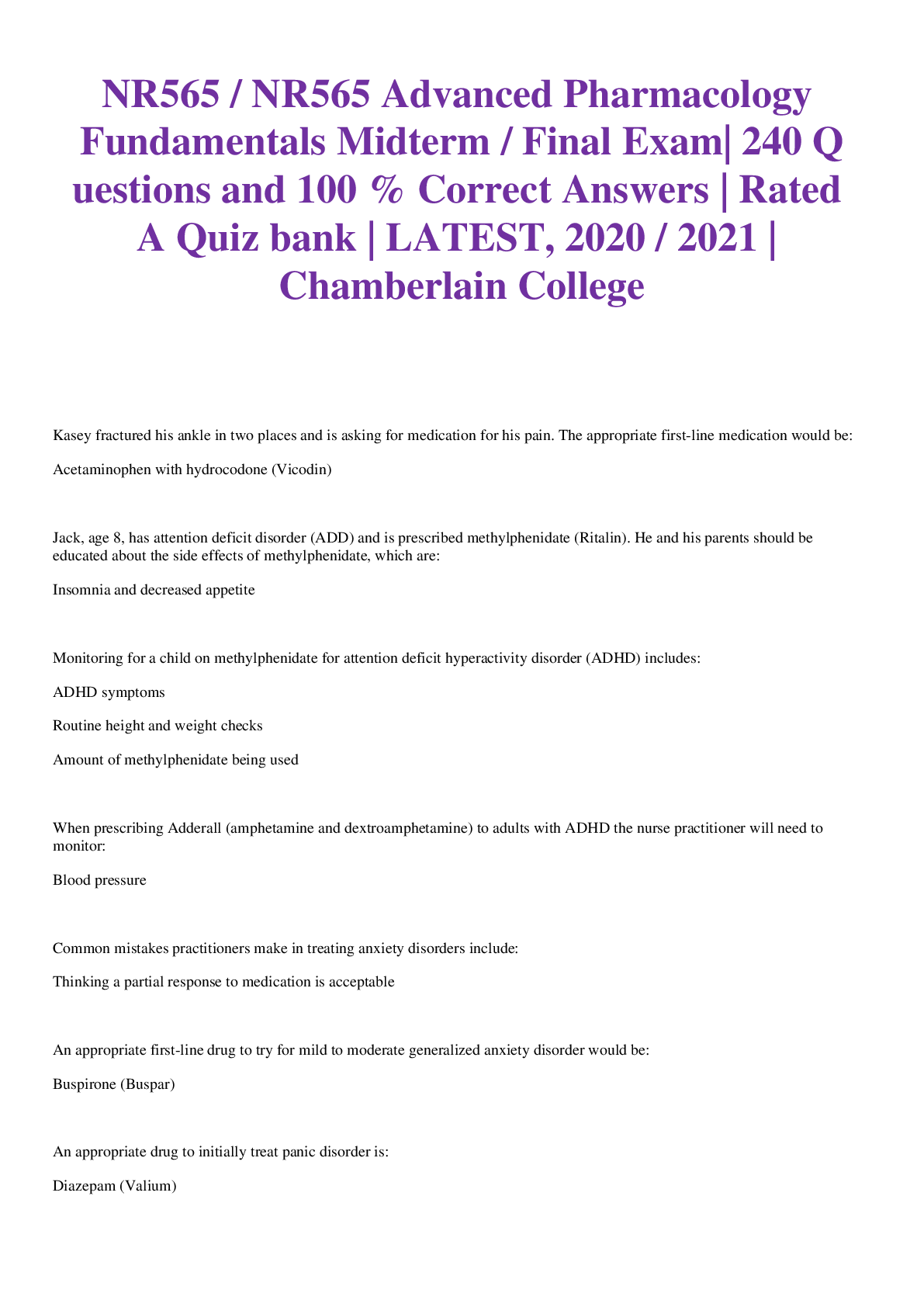
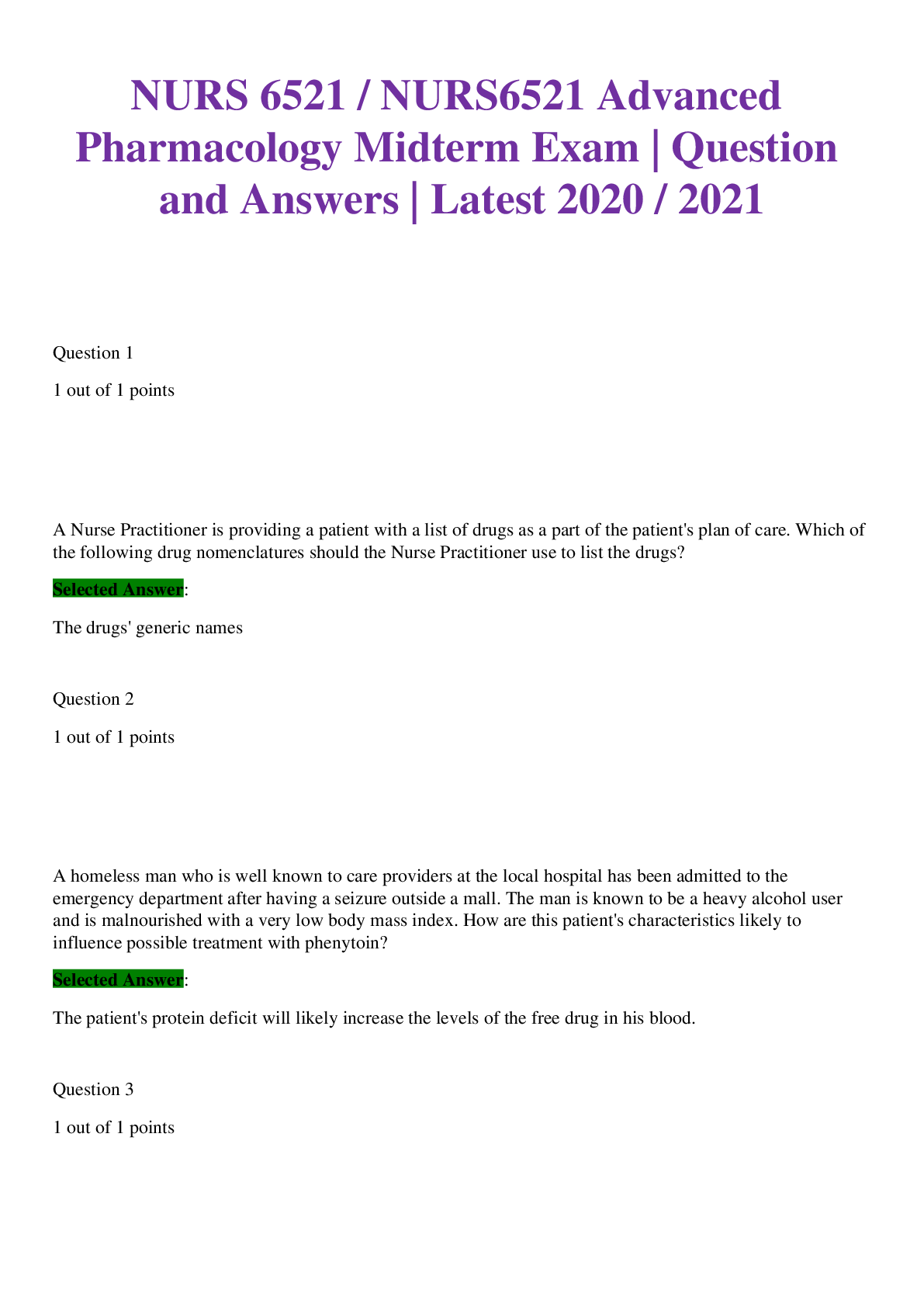
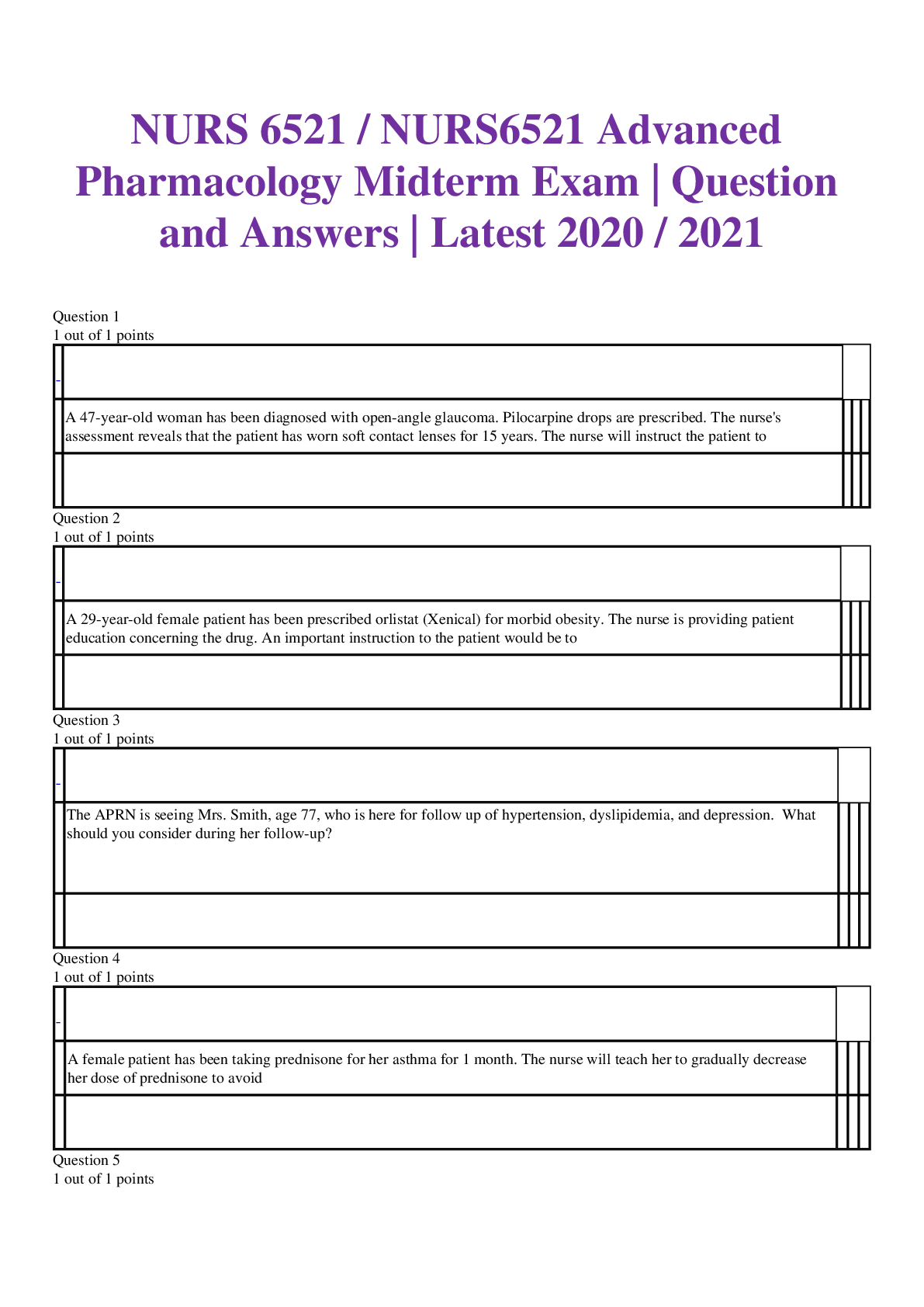
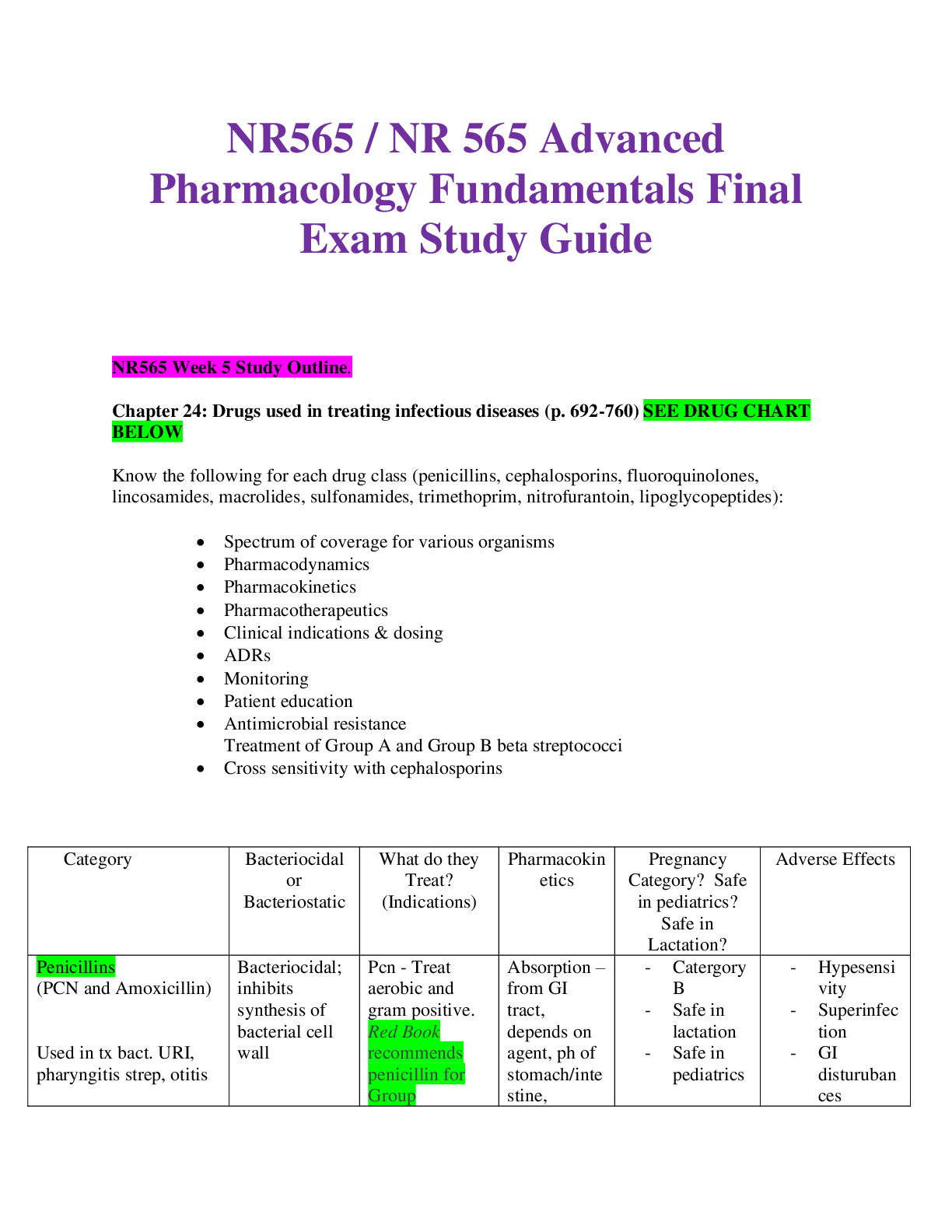
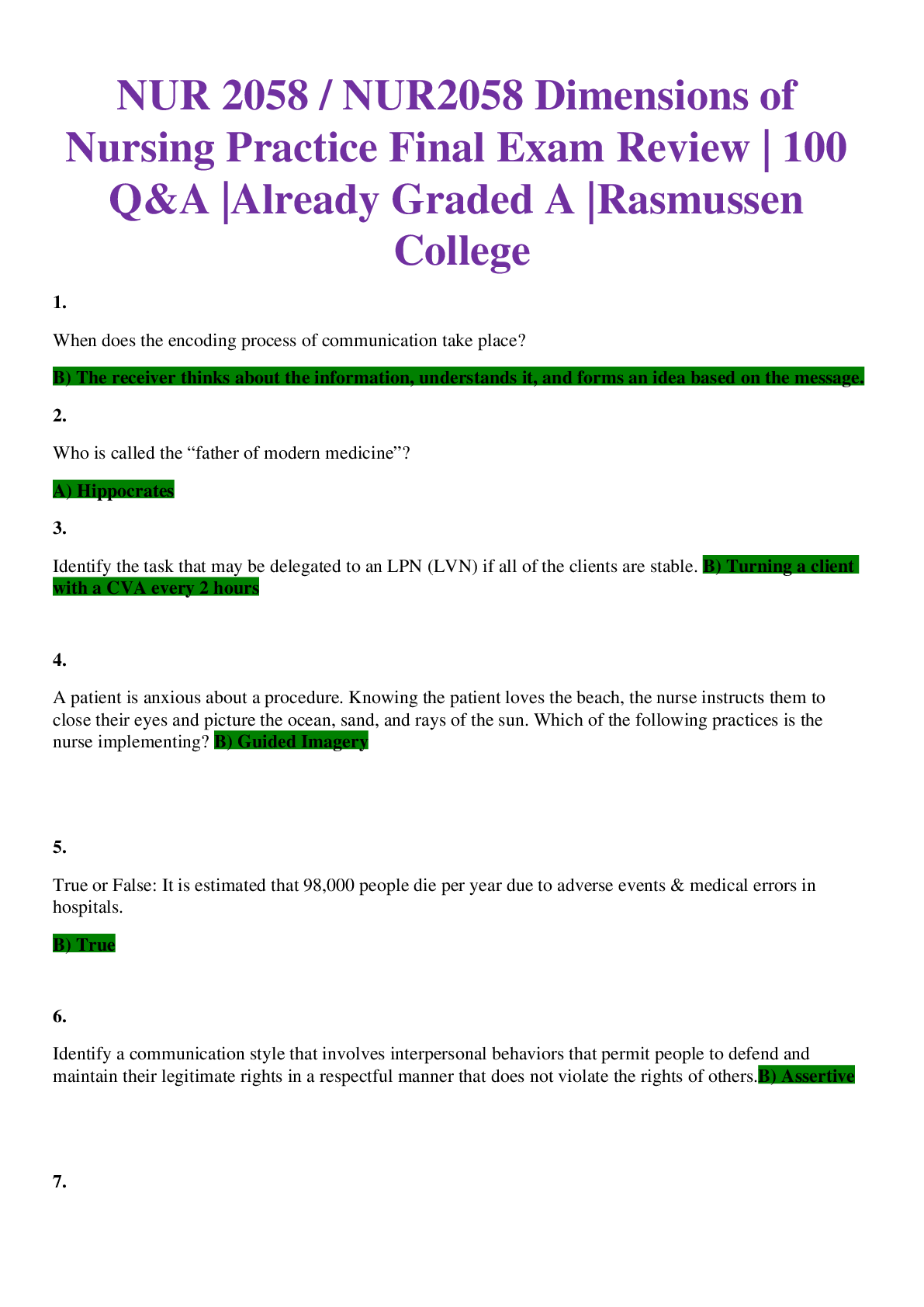
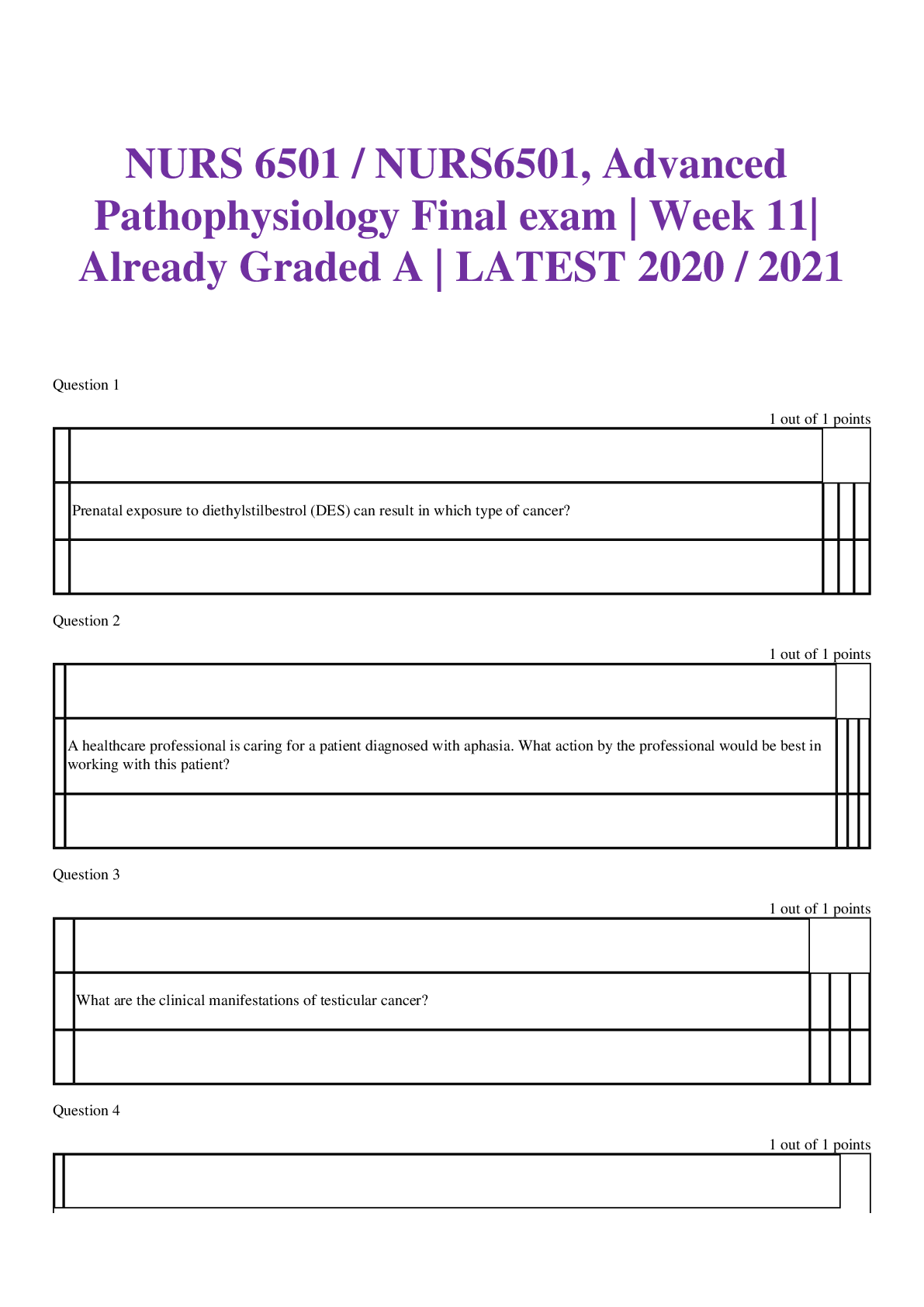
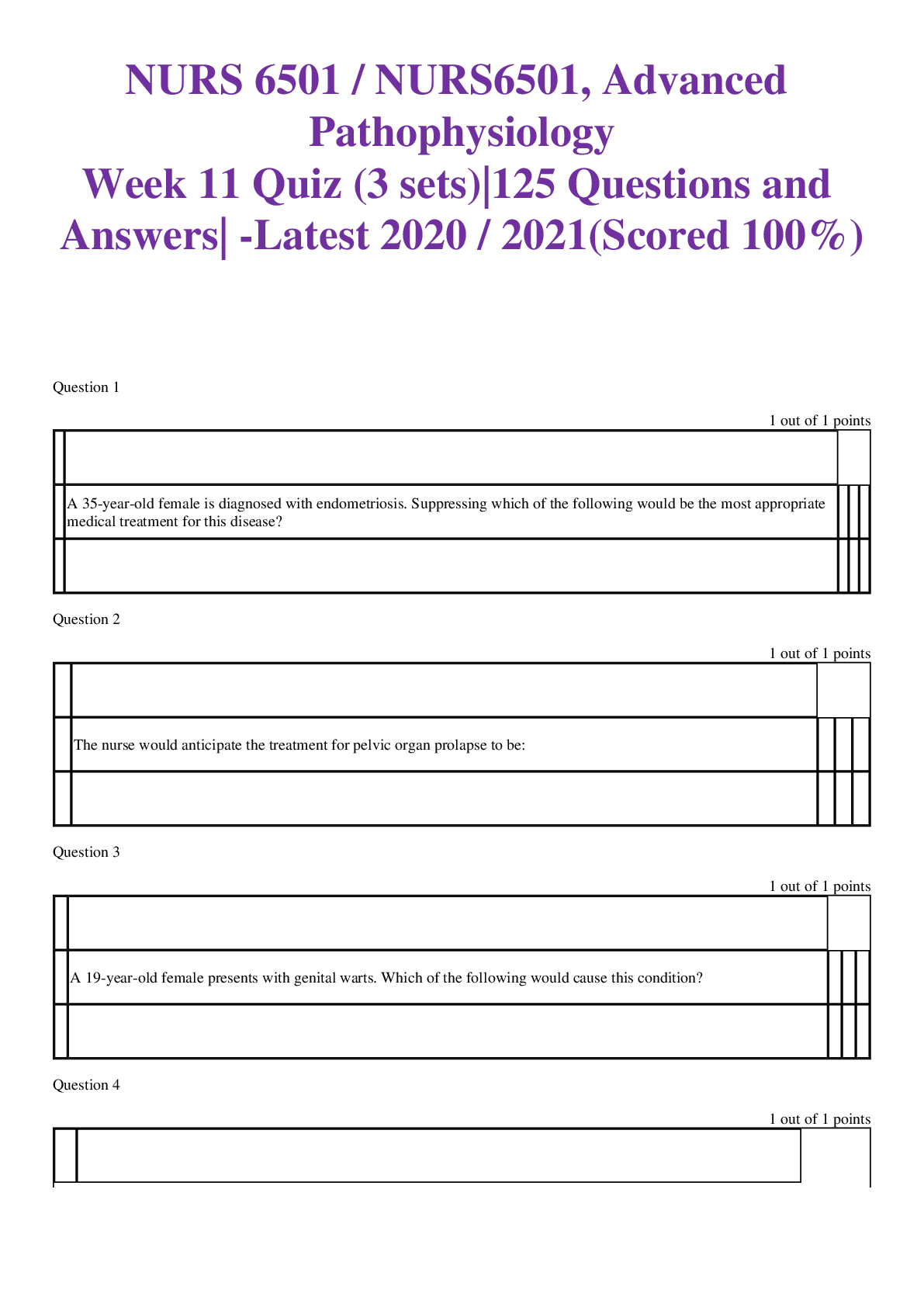
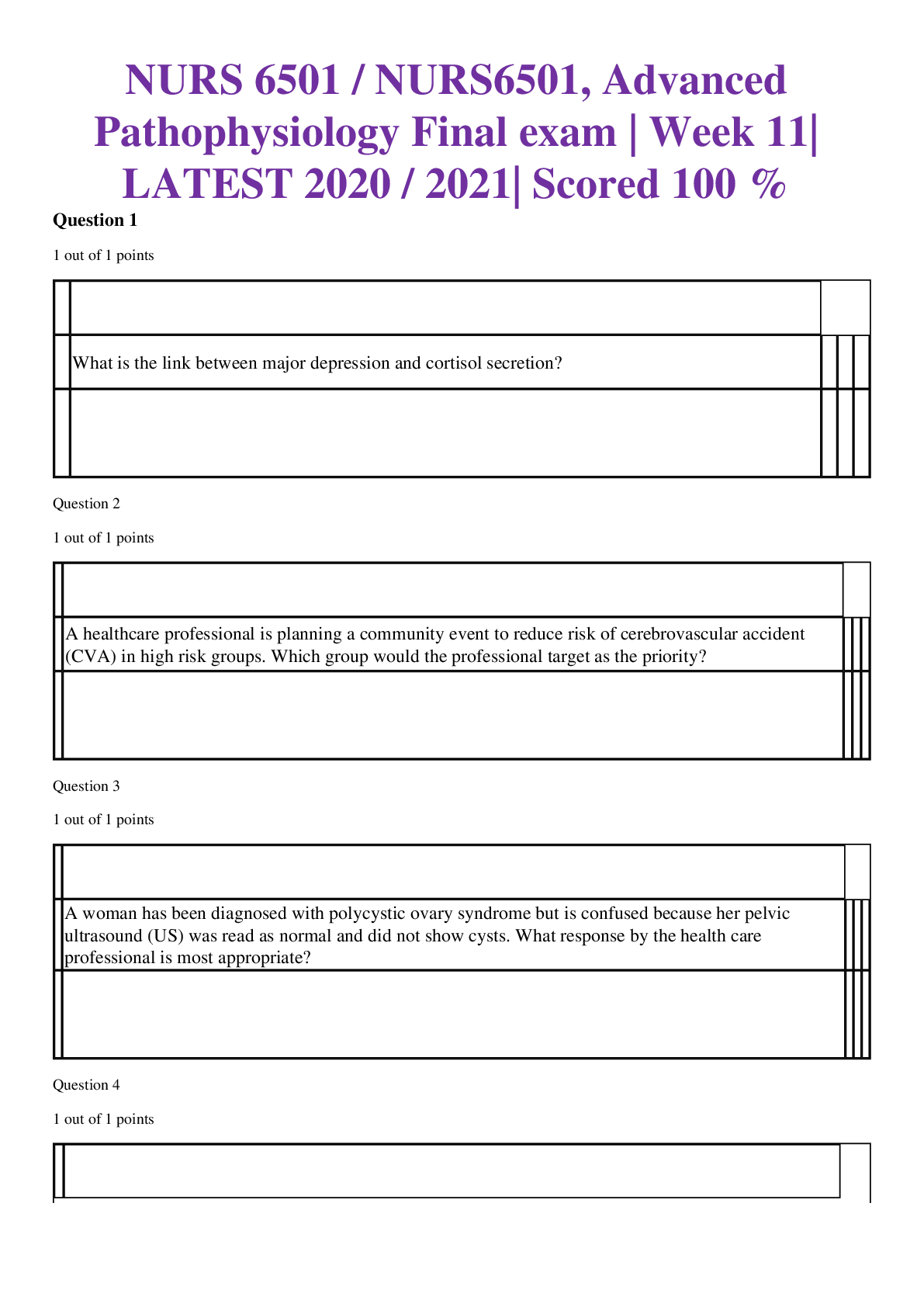
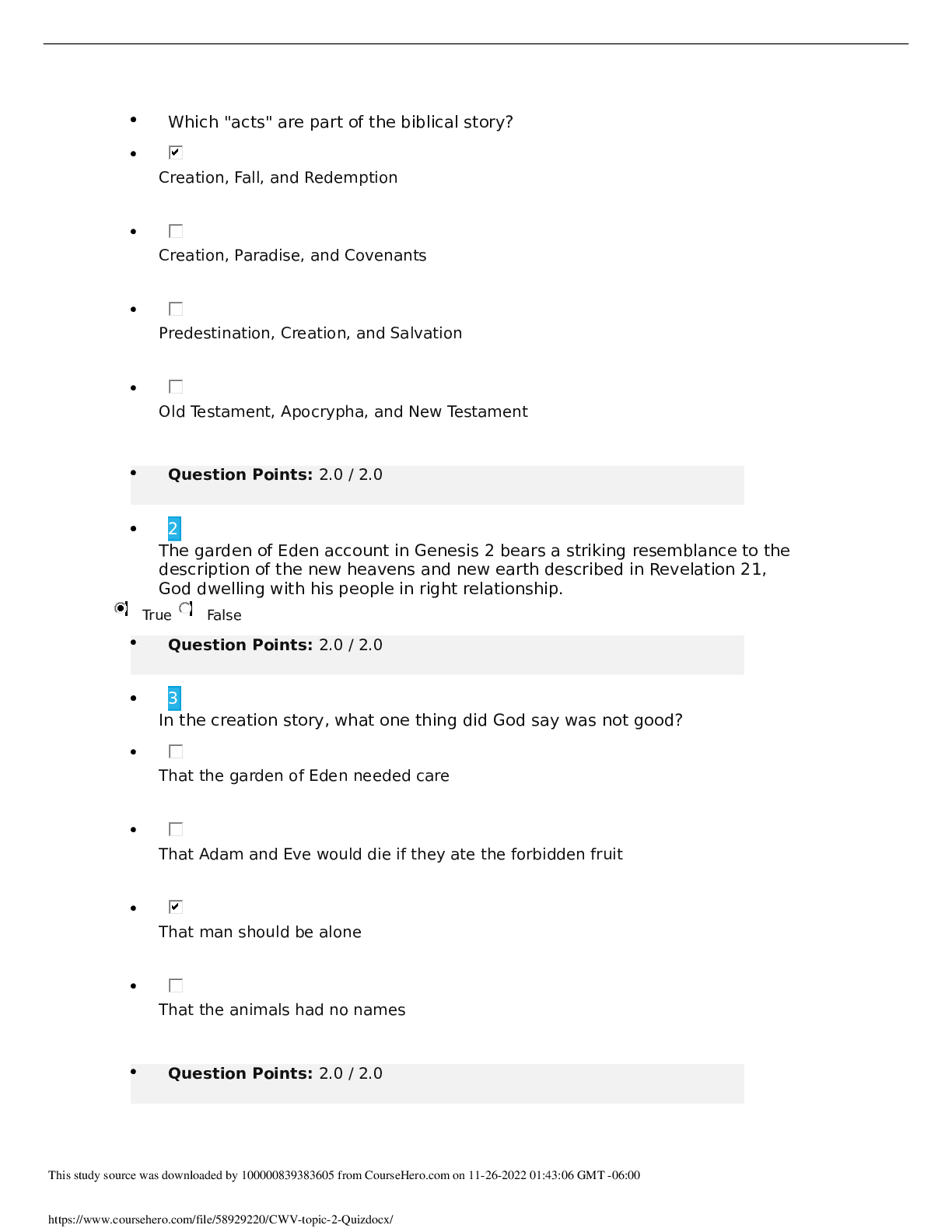
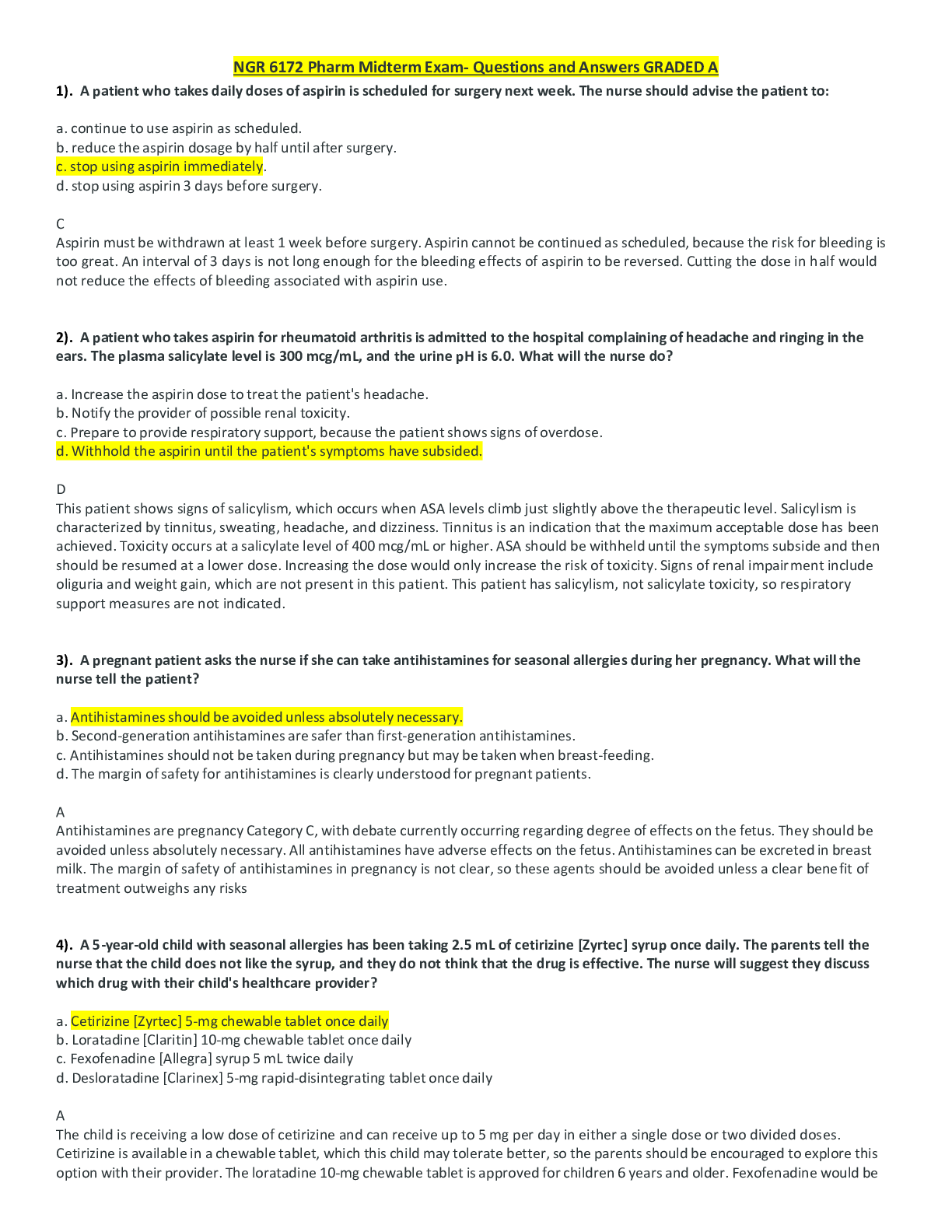
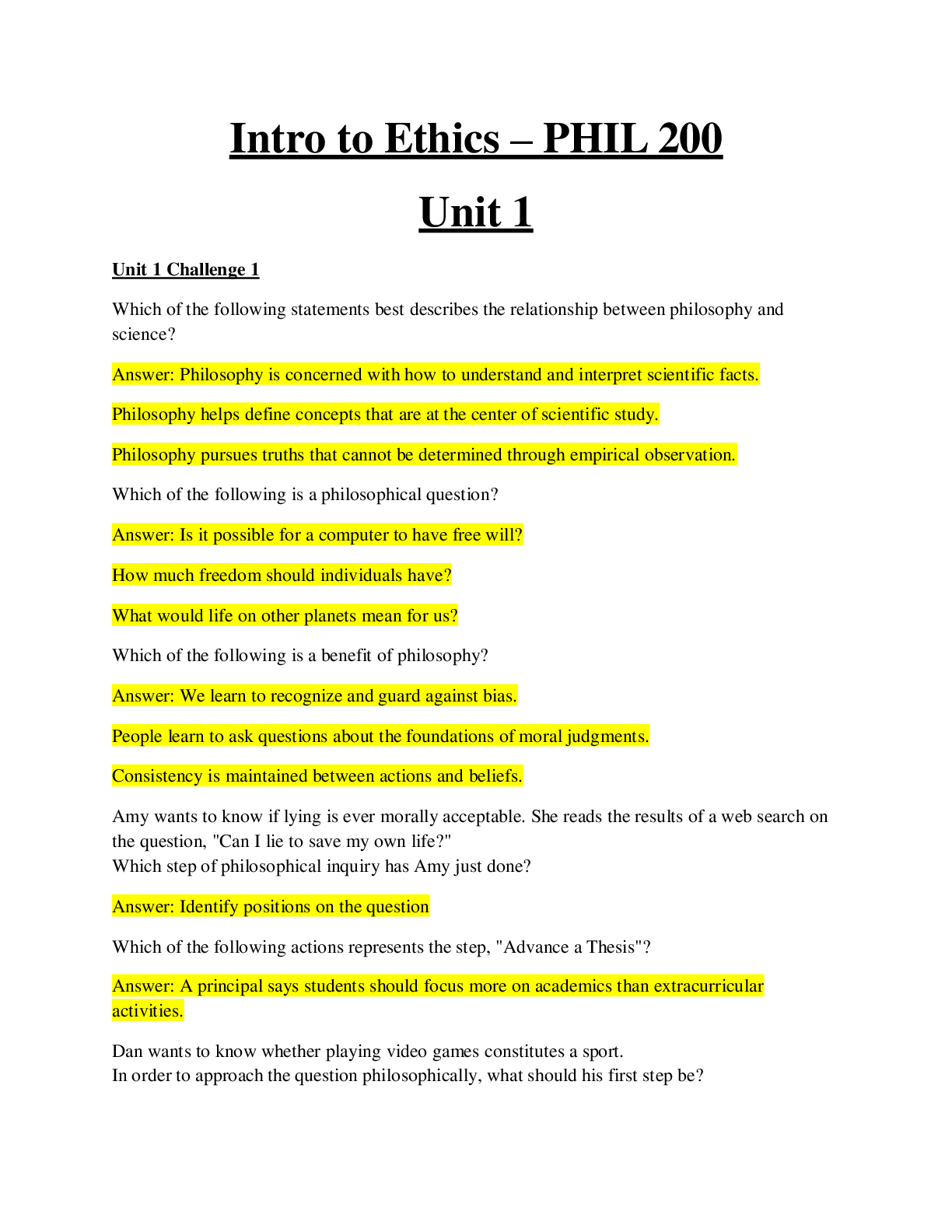
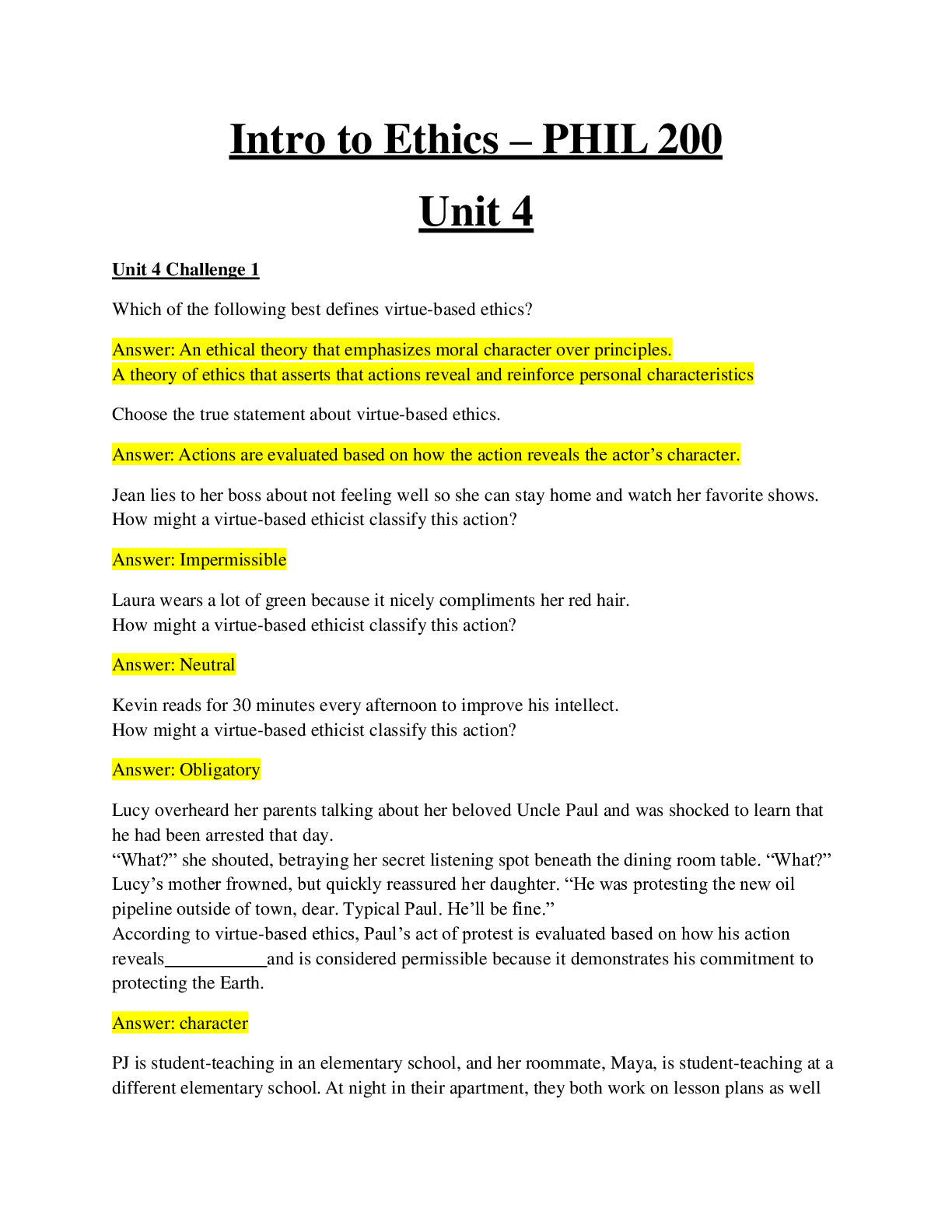
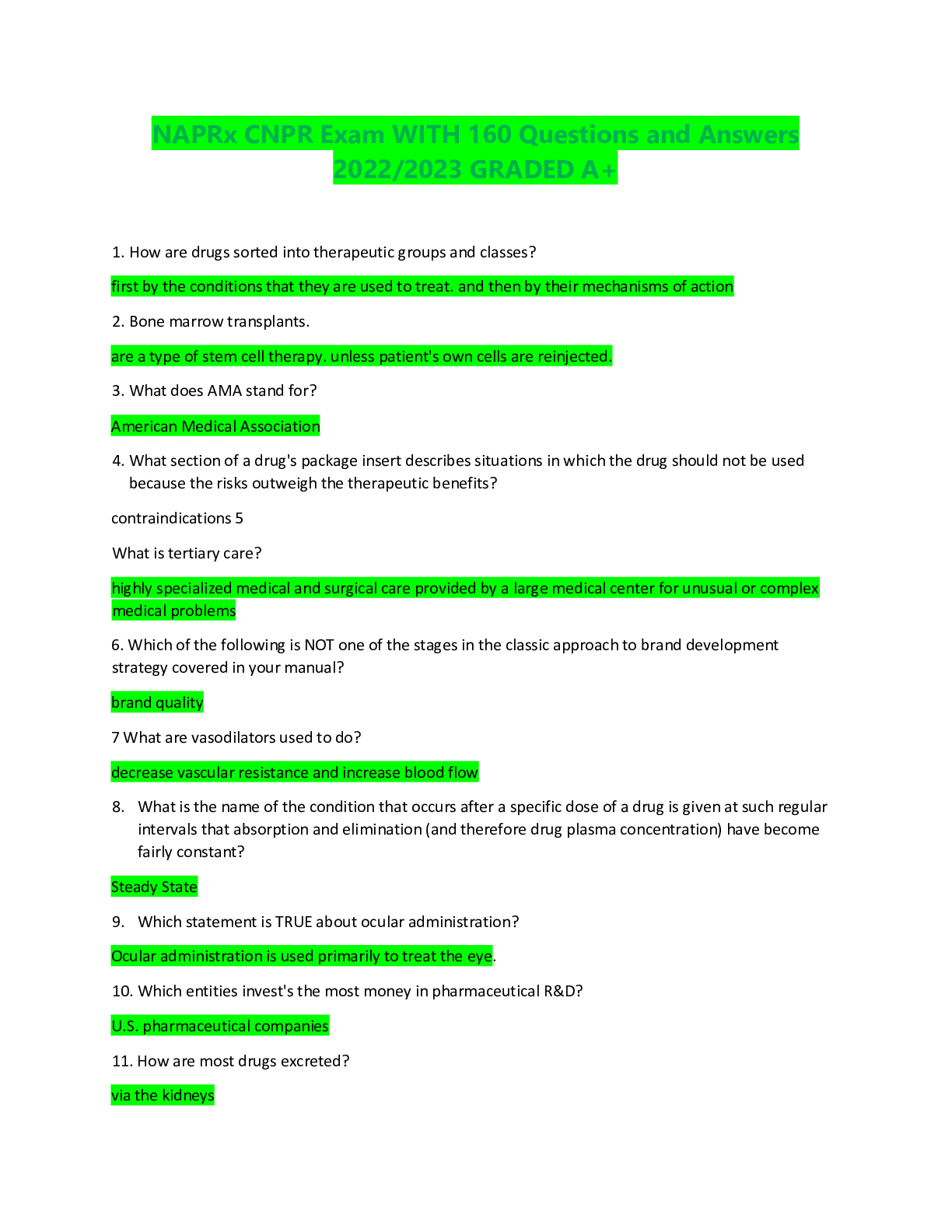
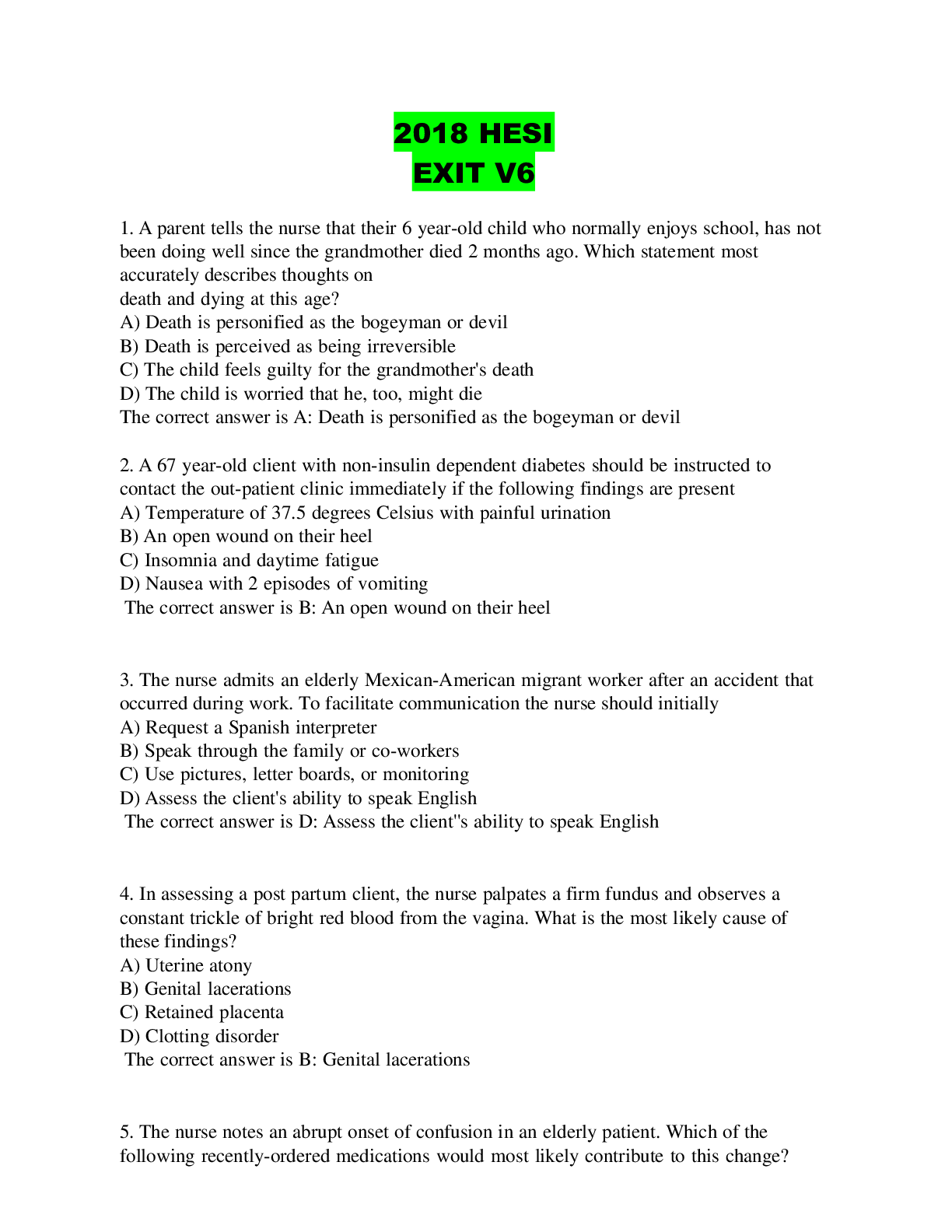
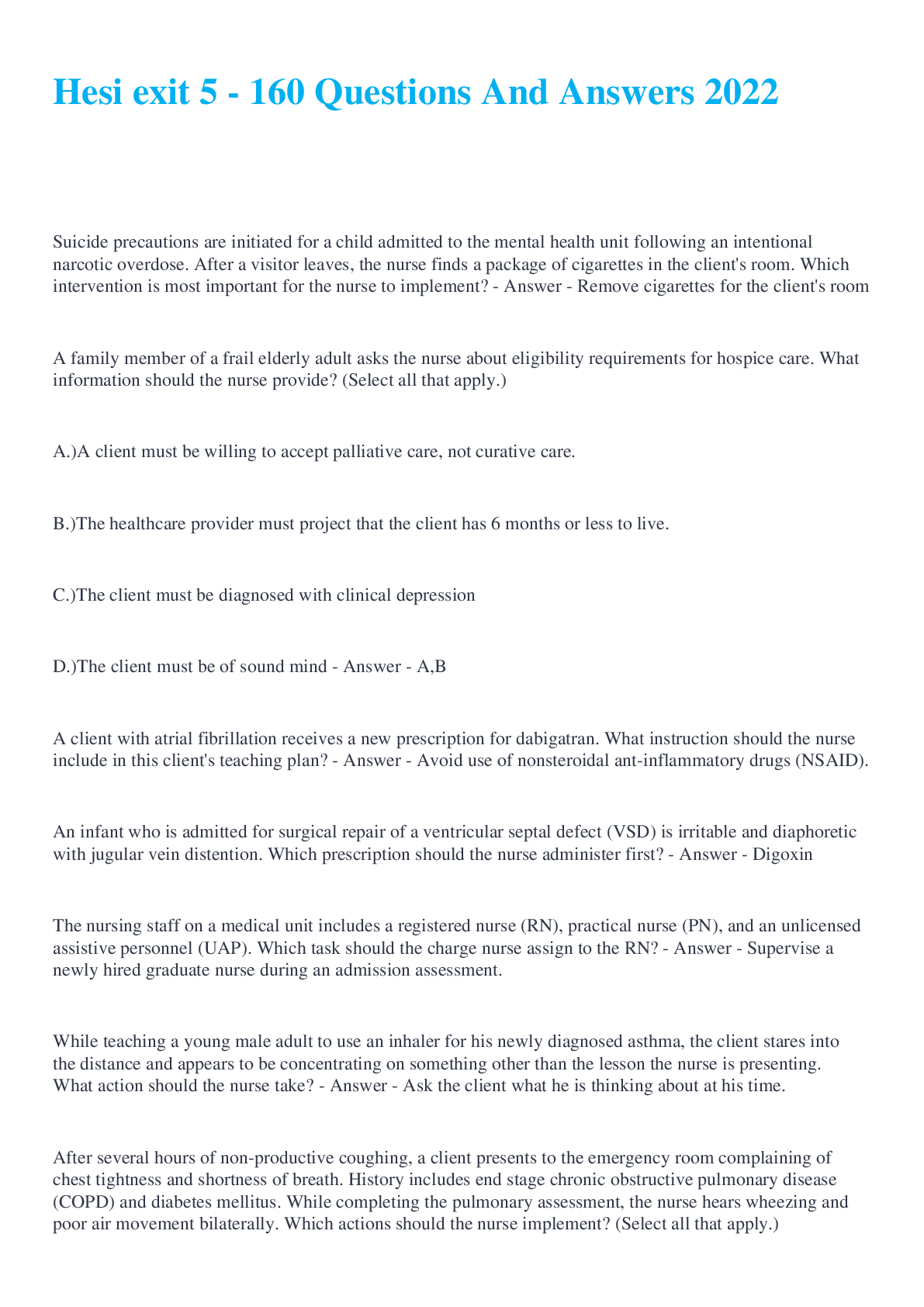
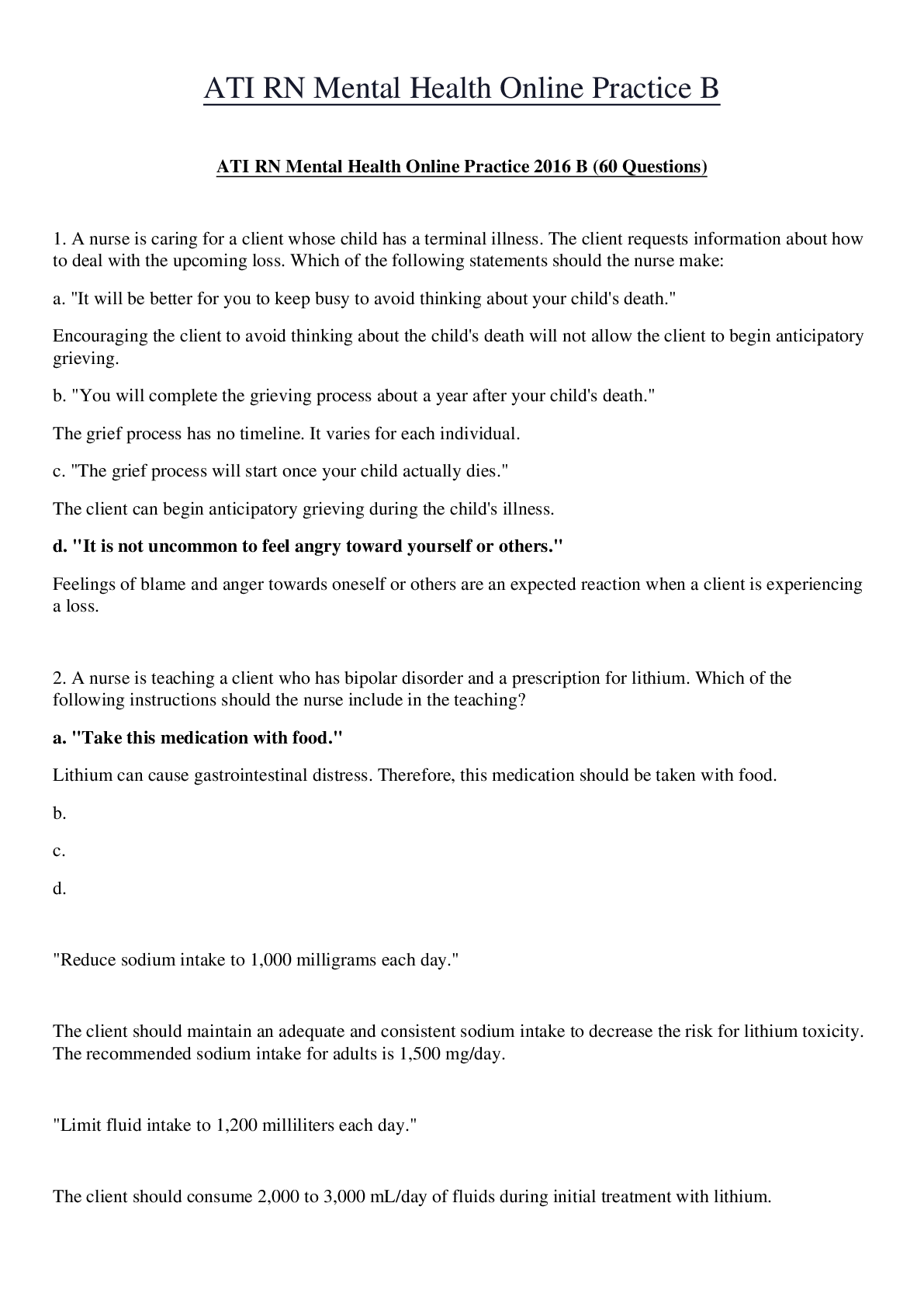
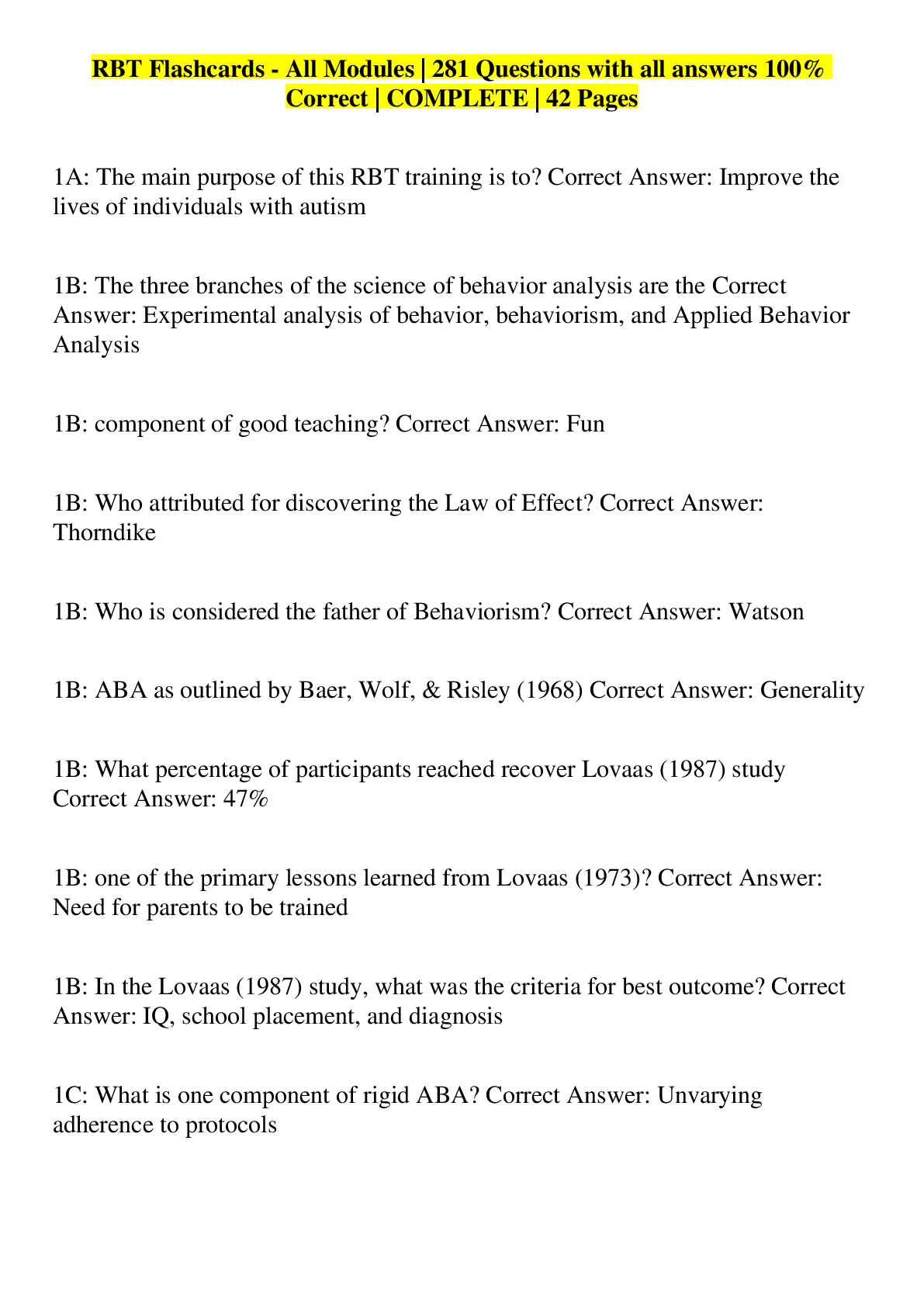
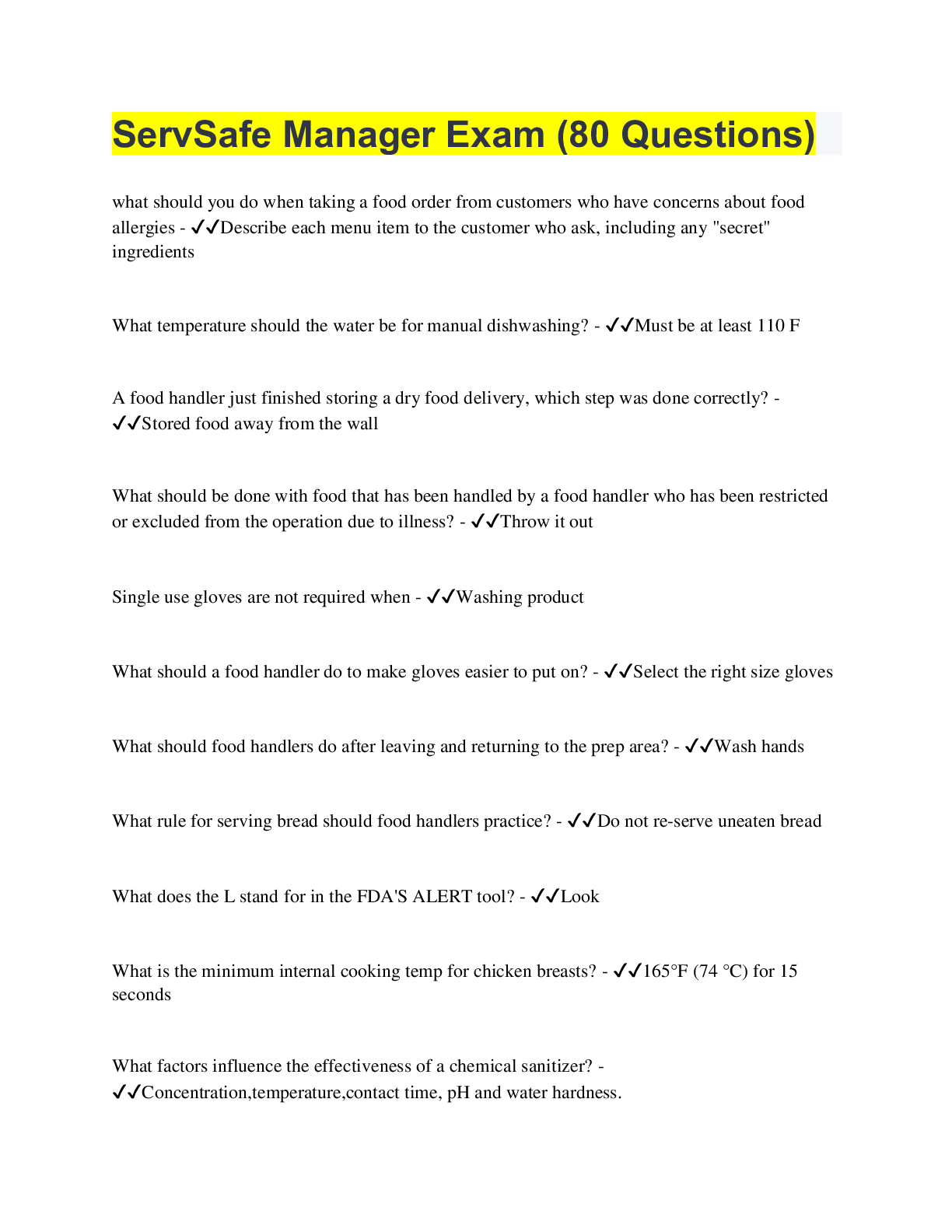
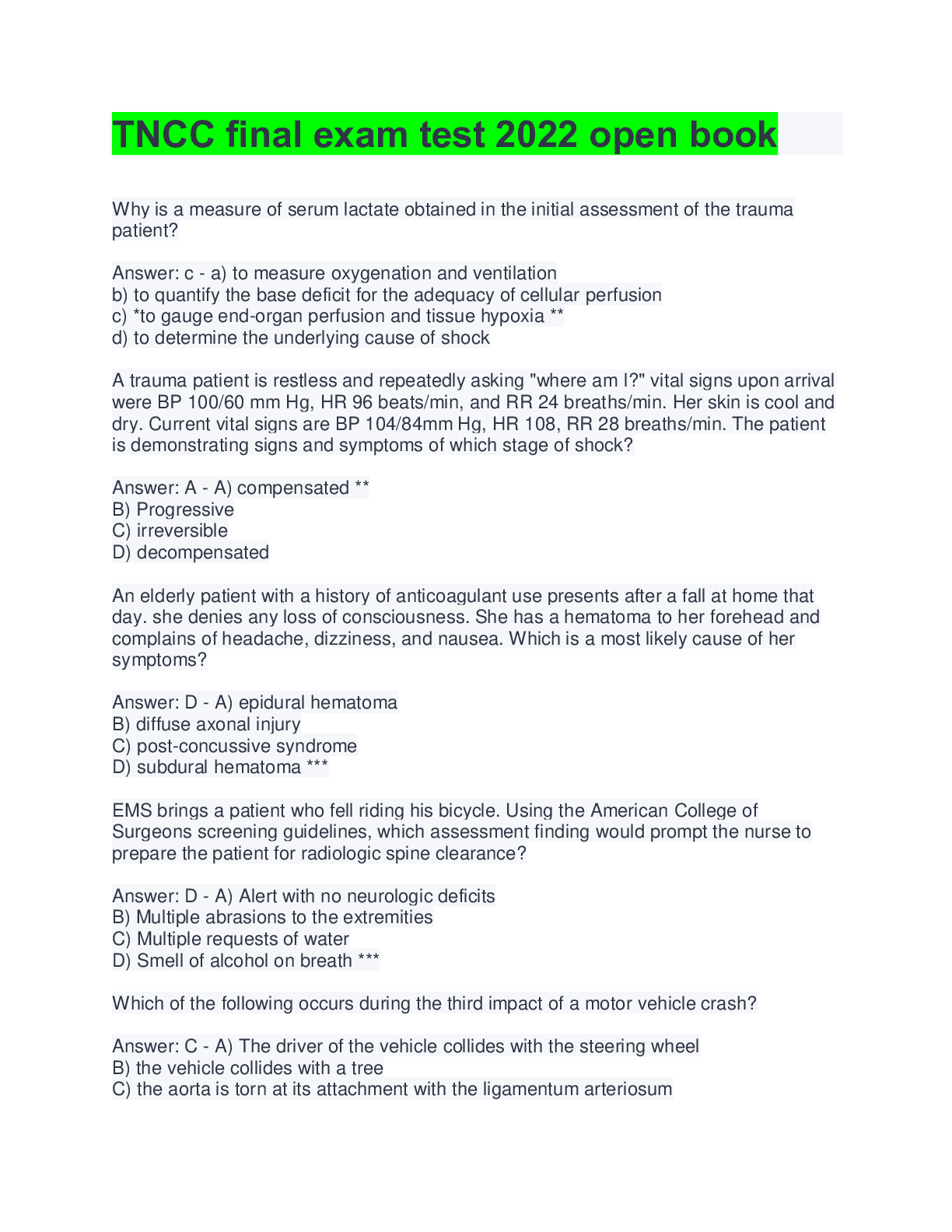
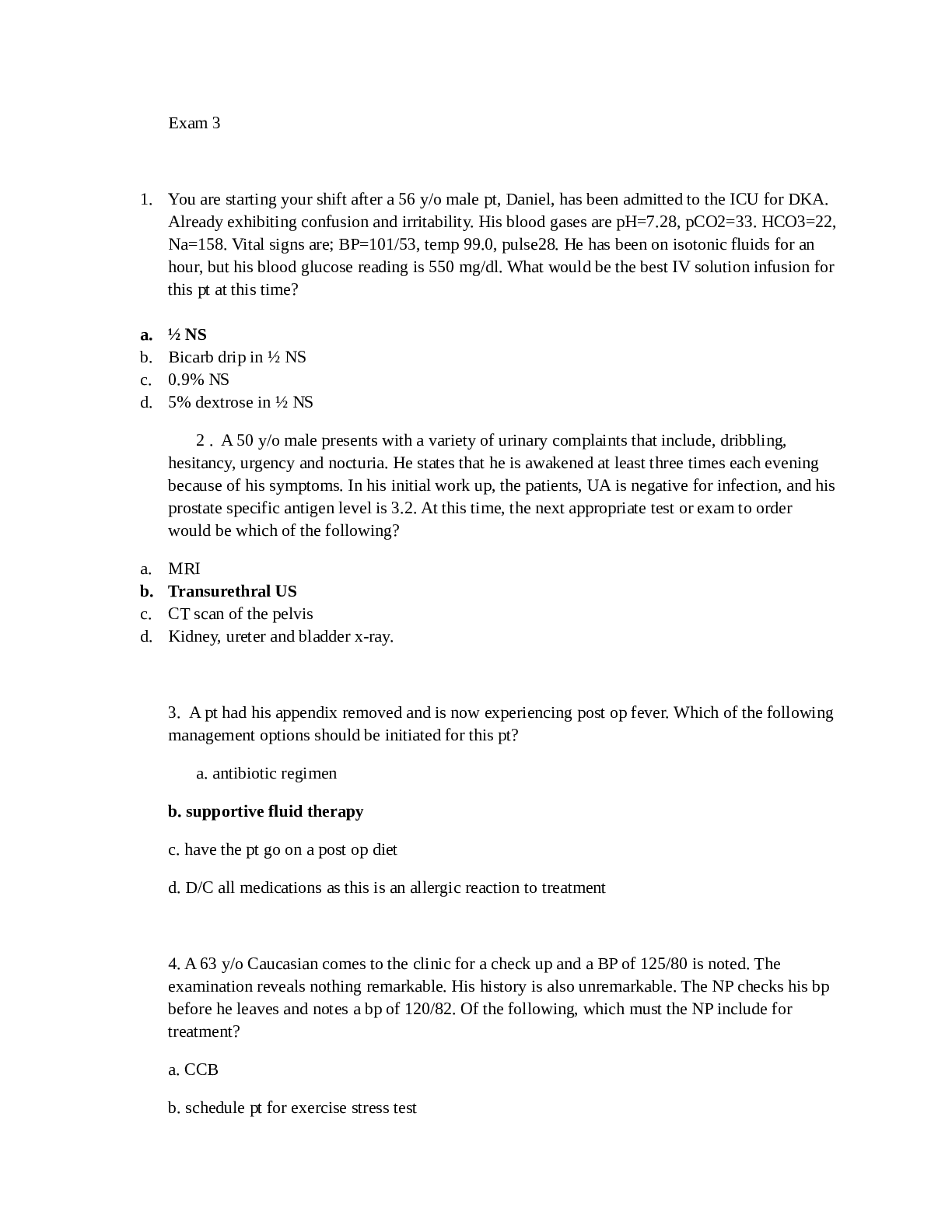
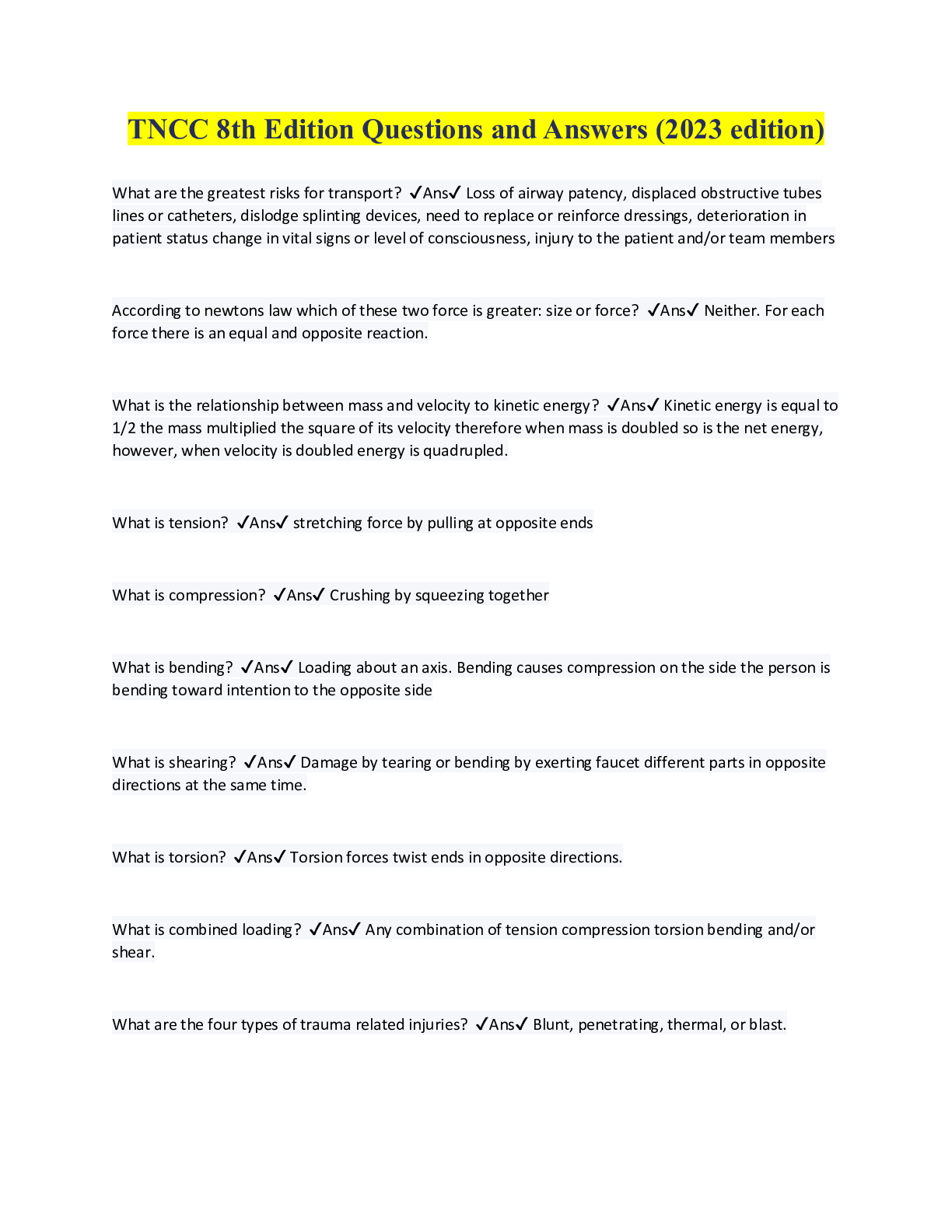
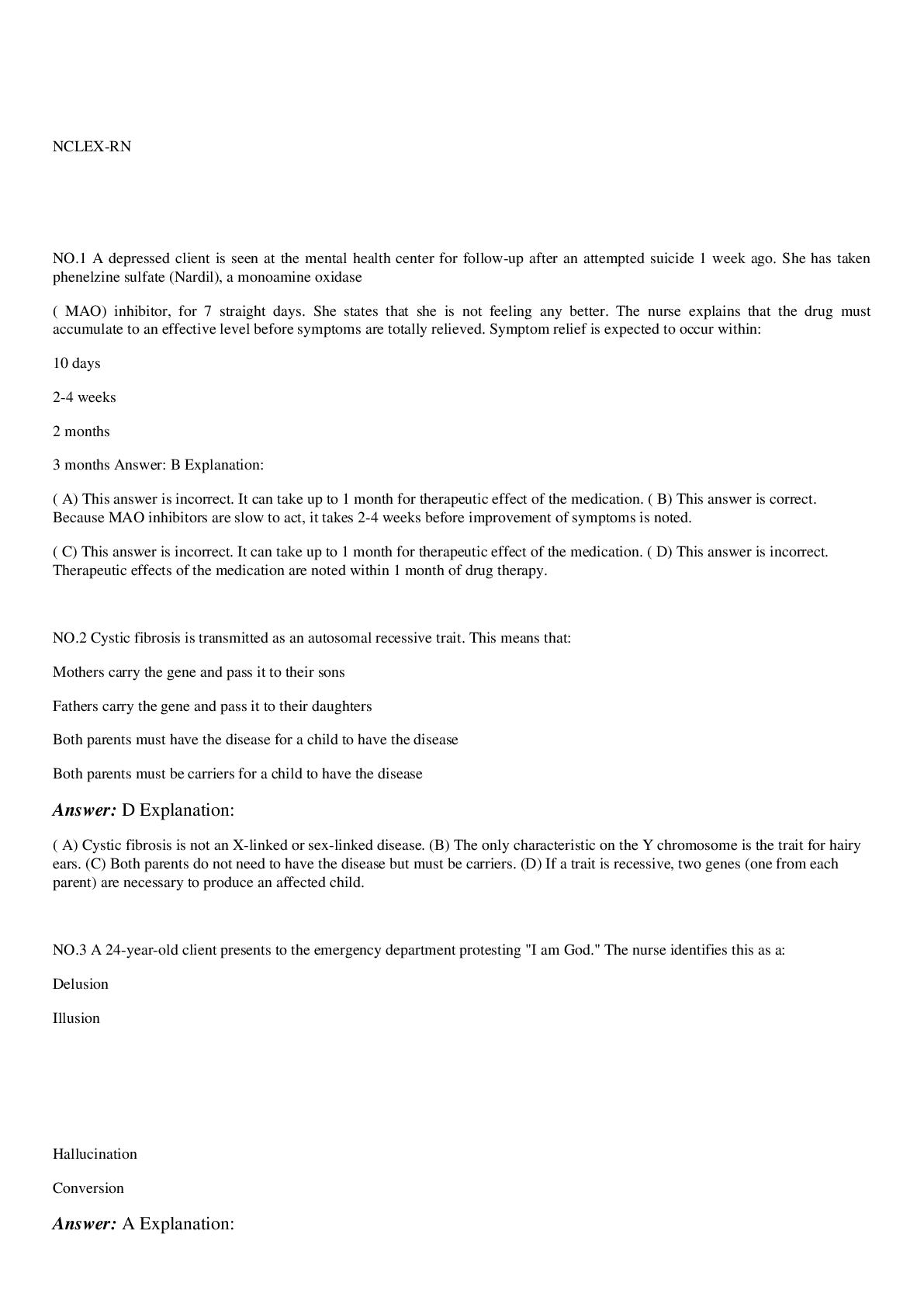
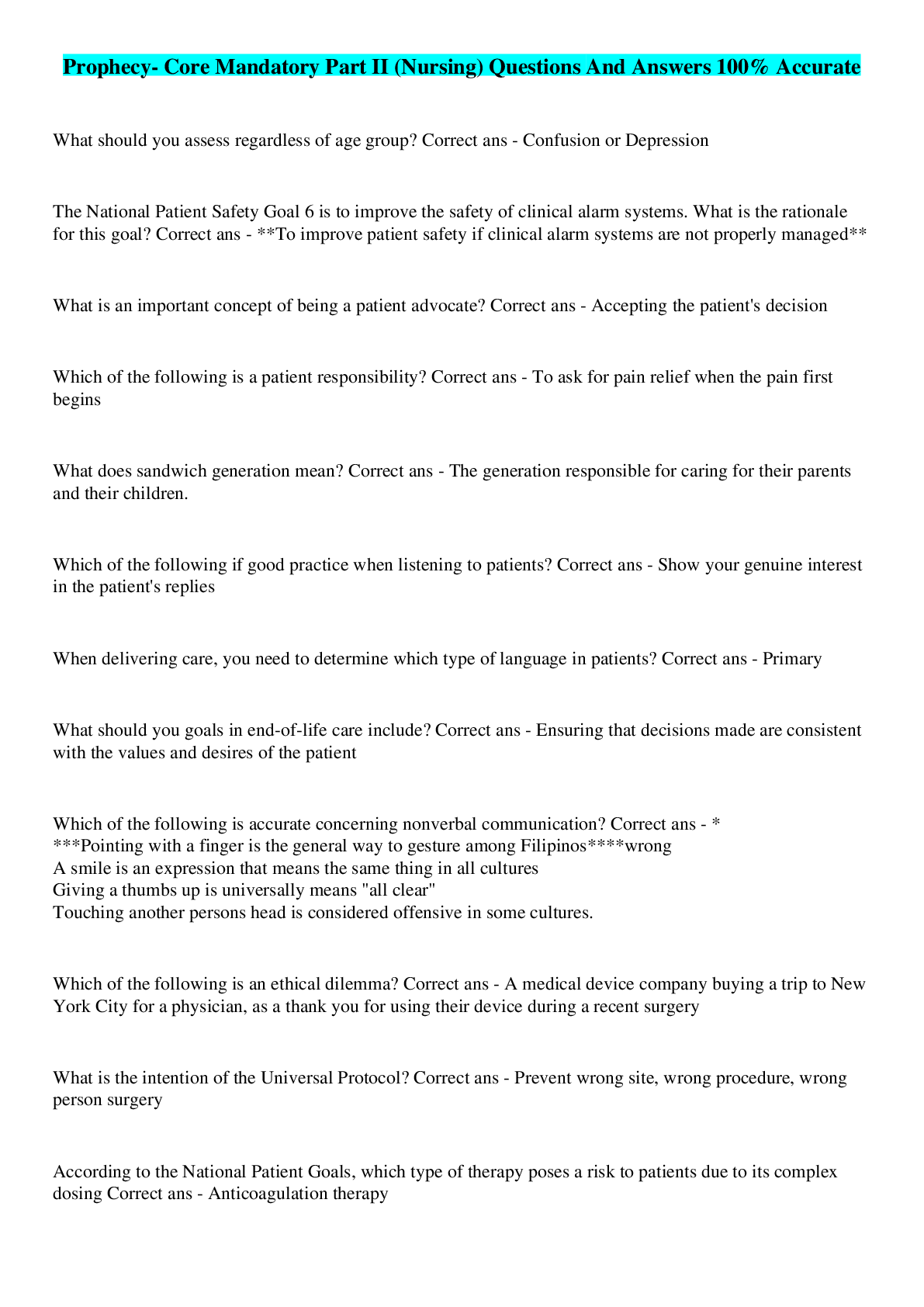
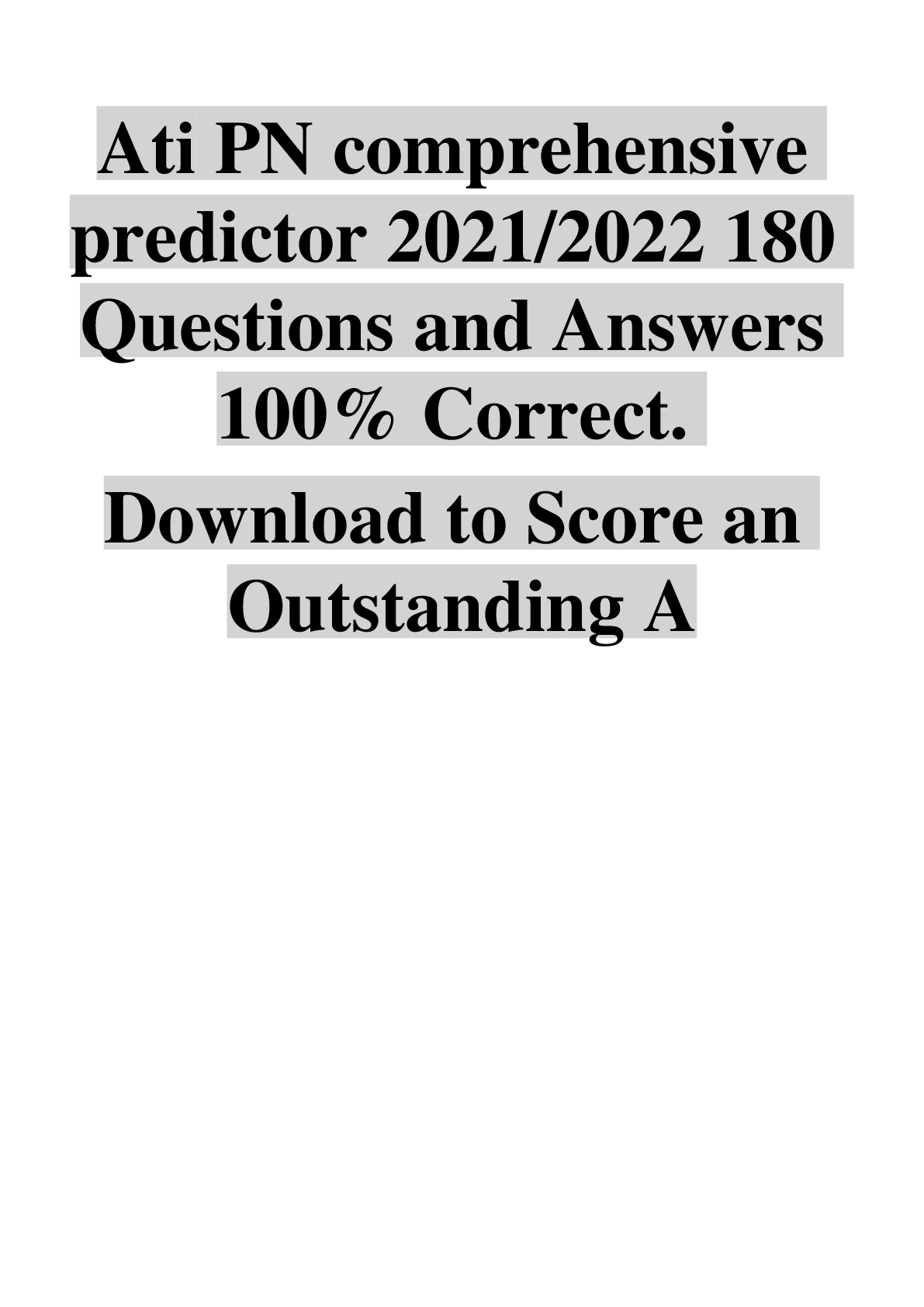
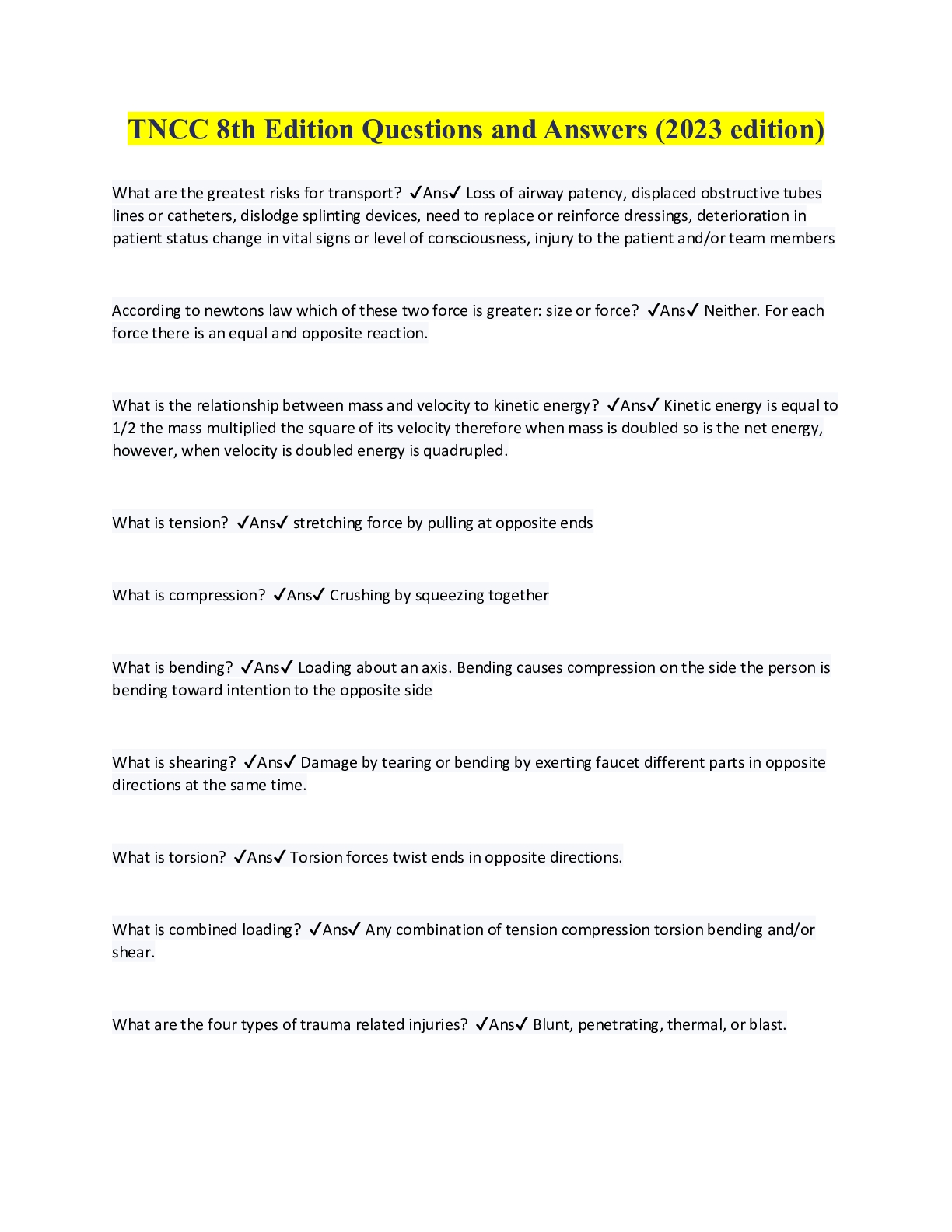
.png)
